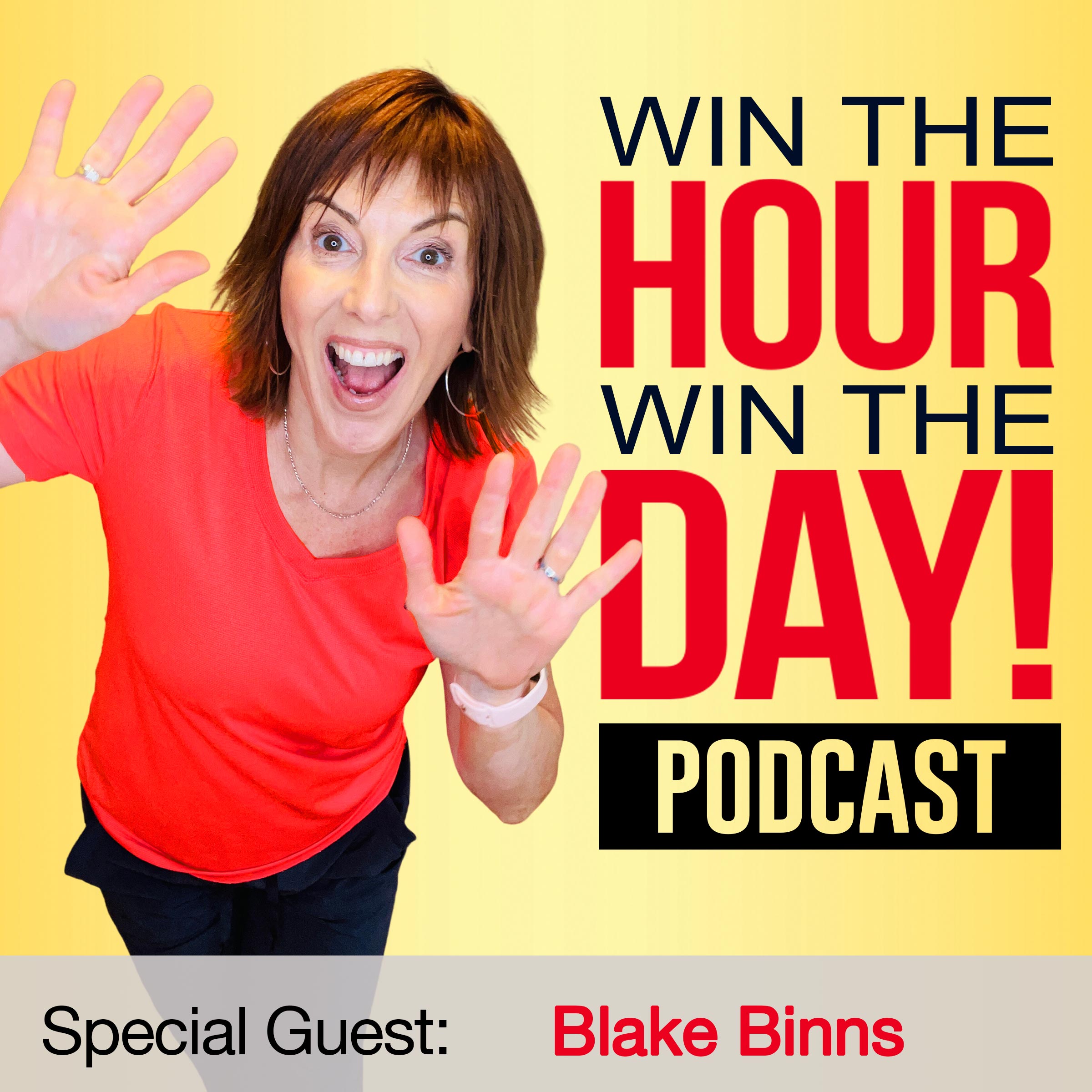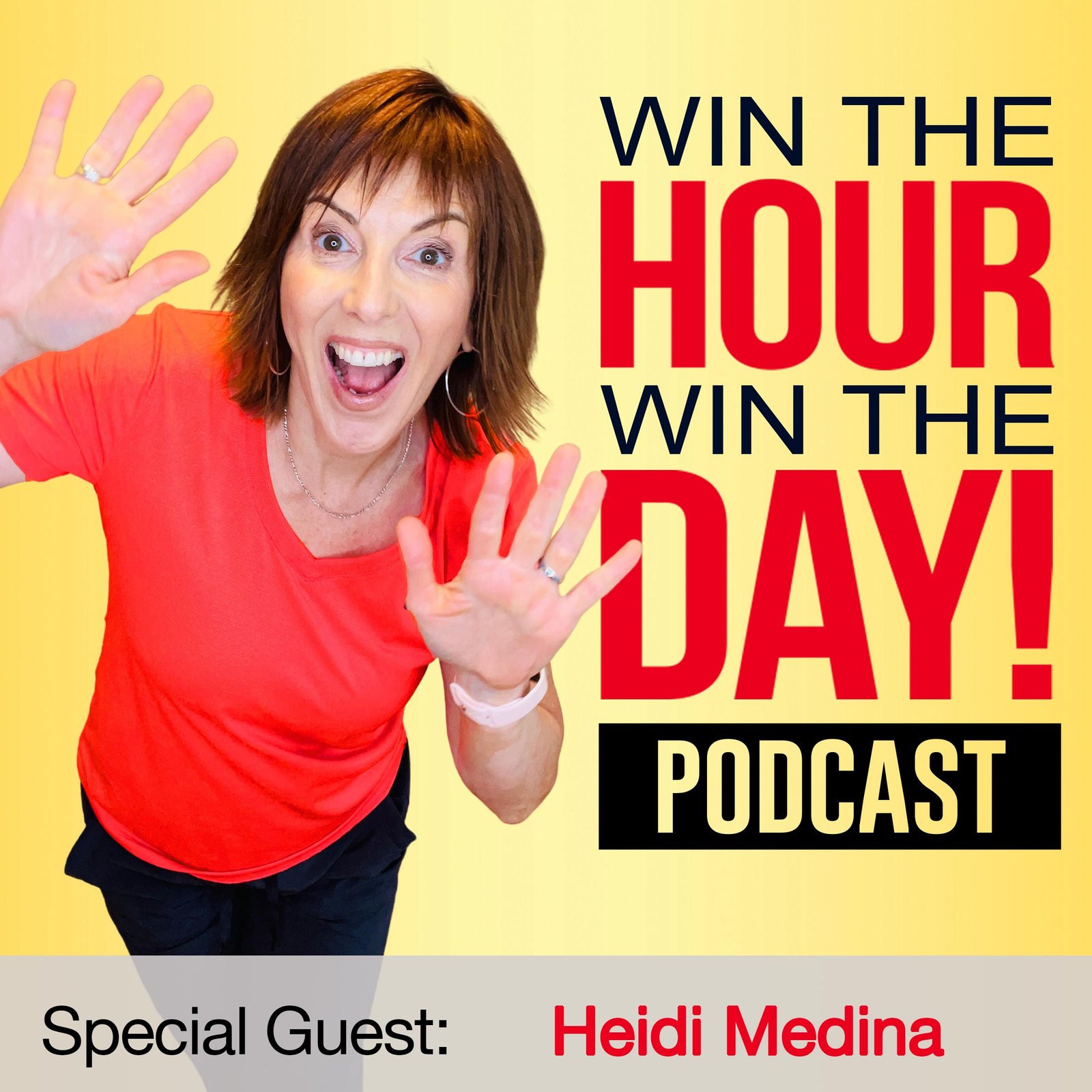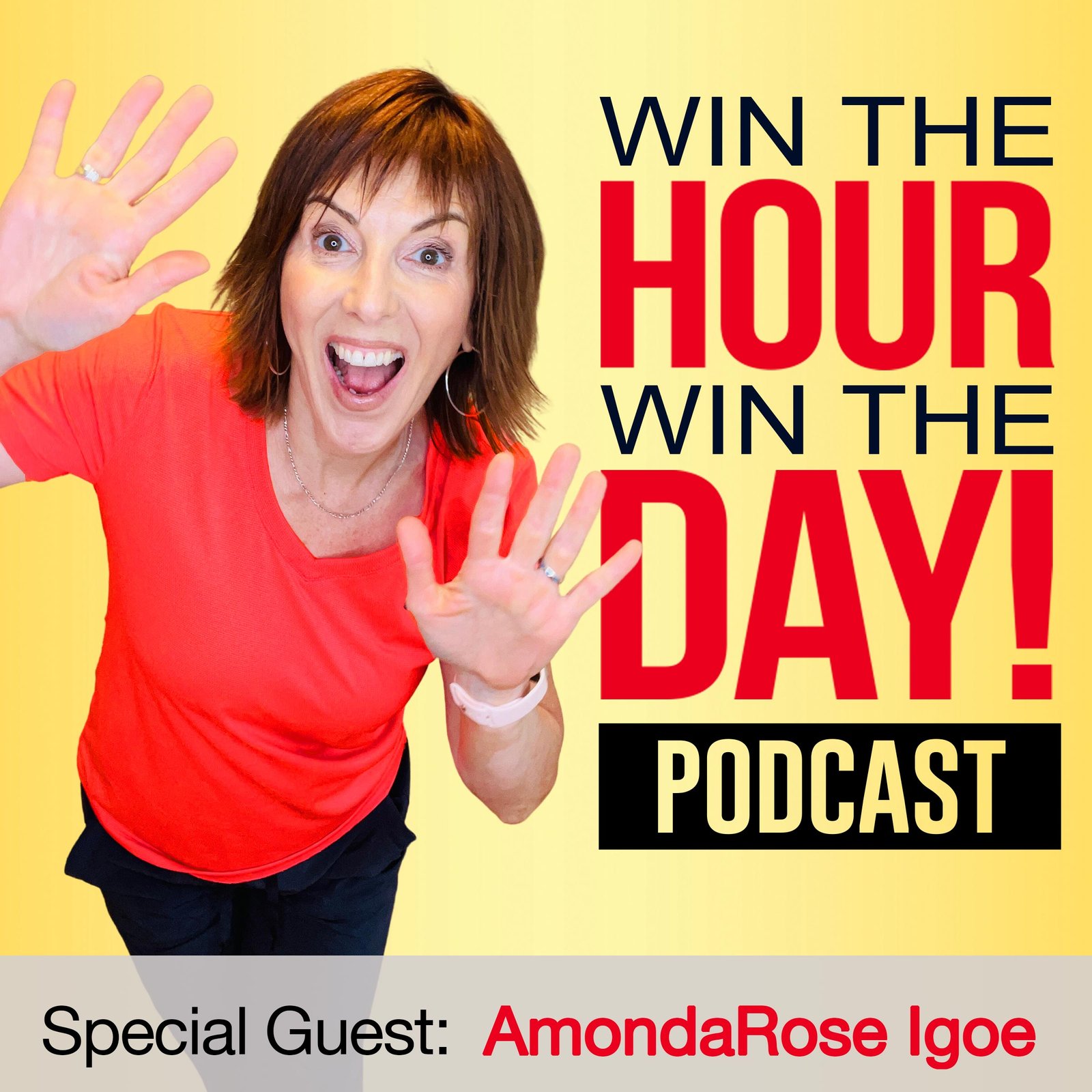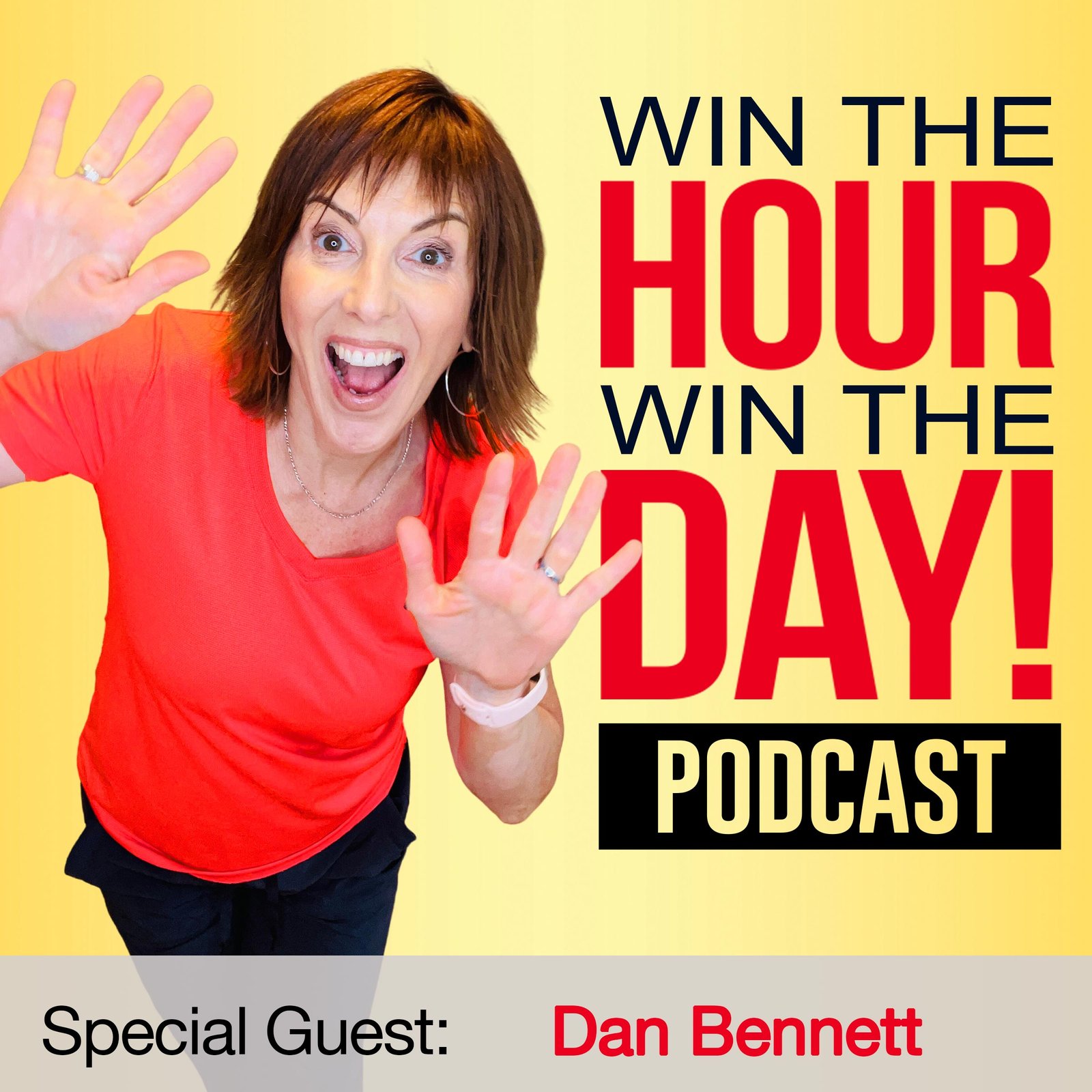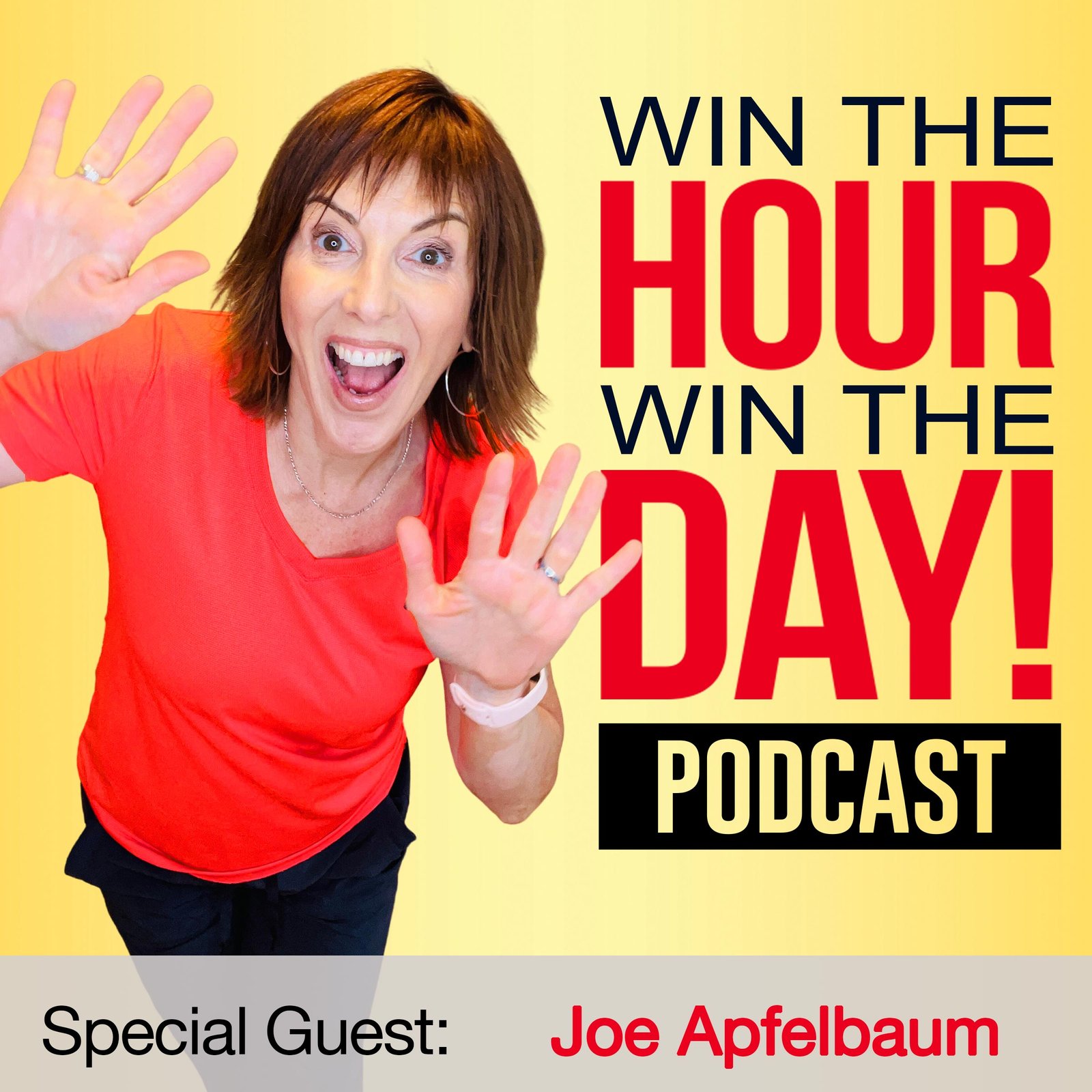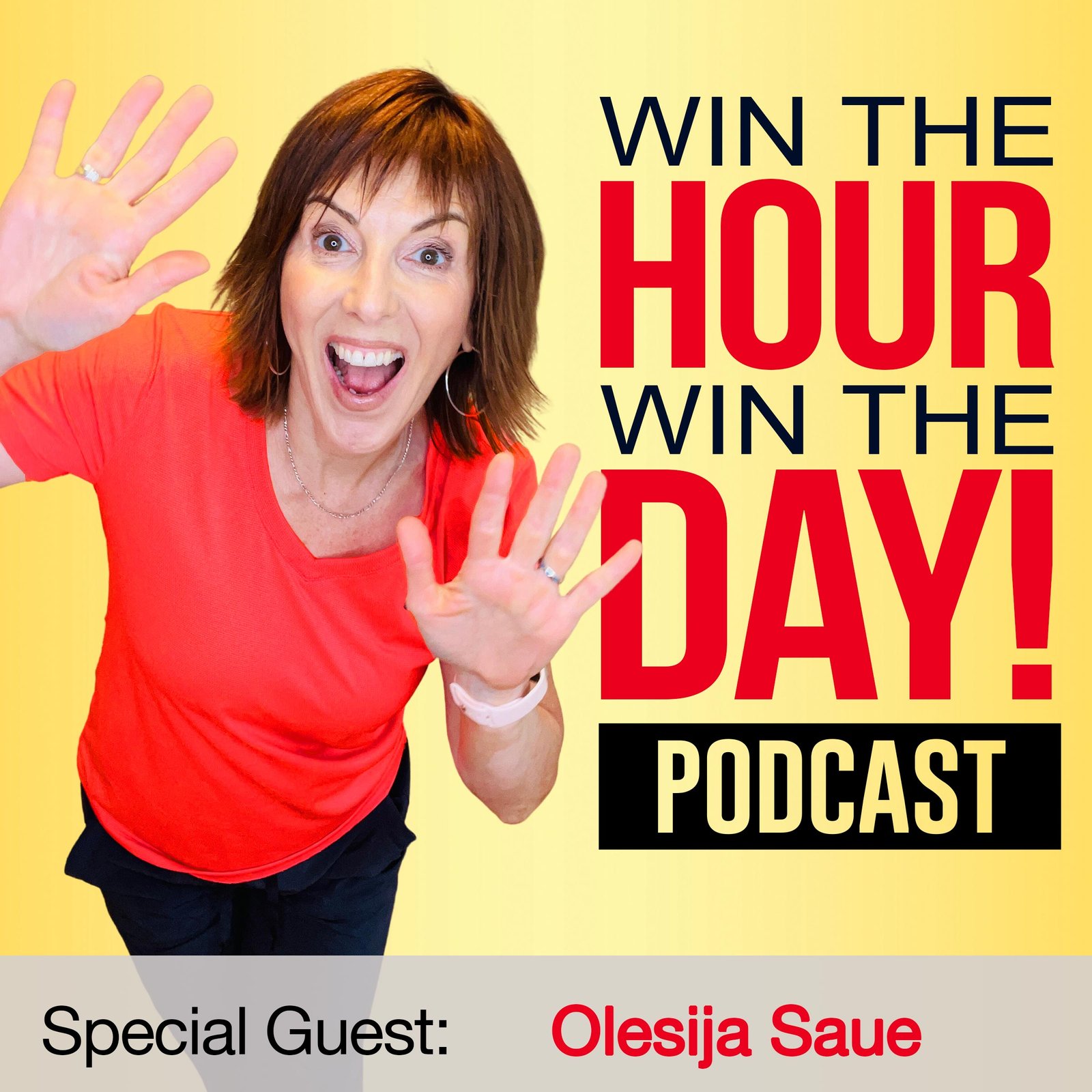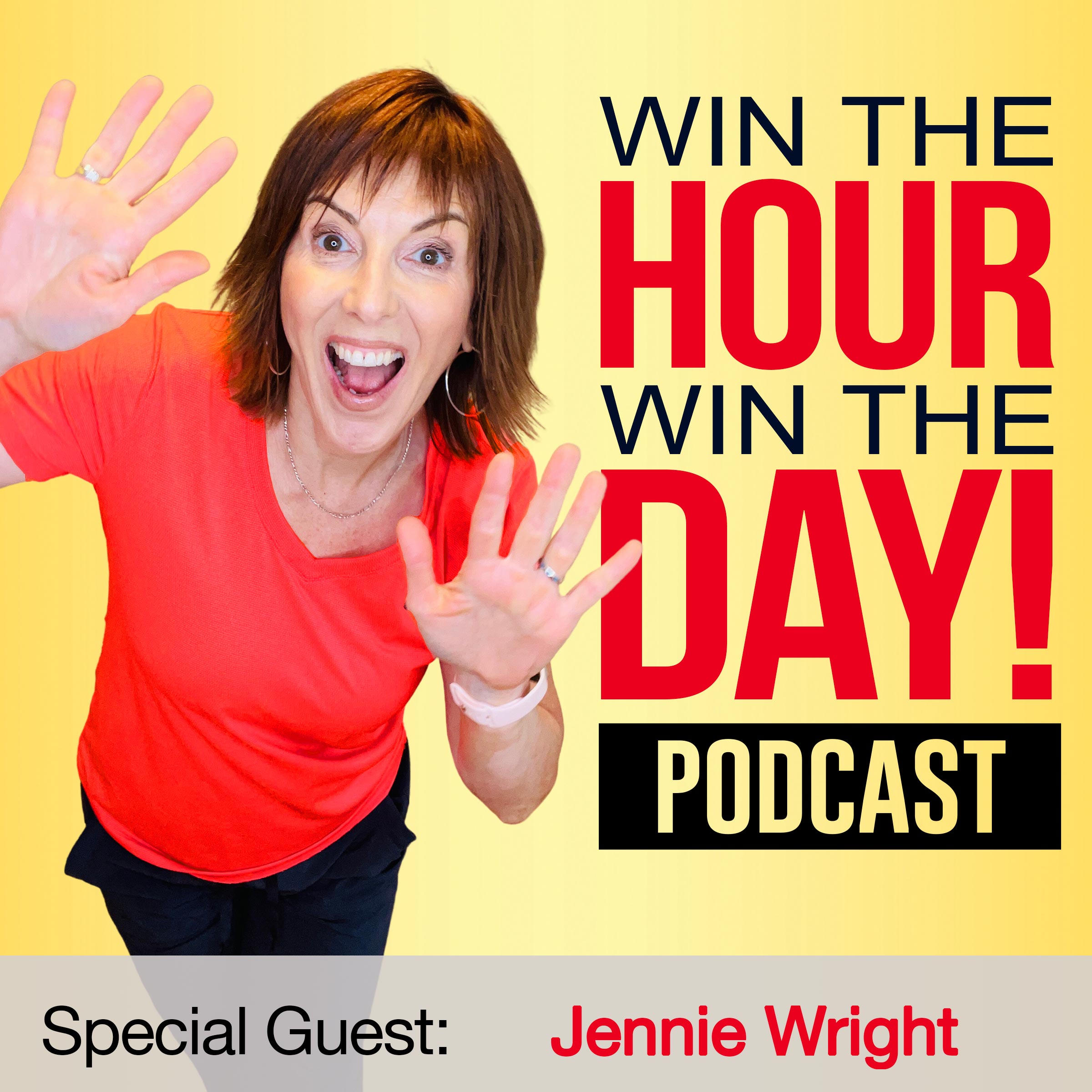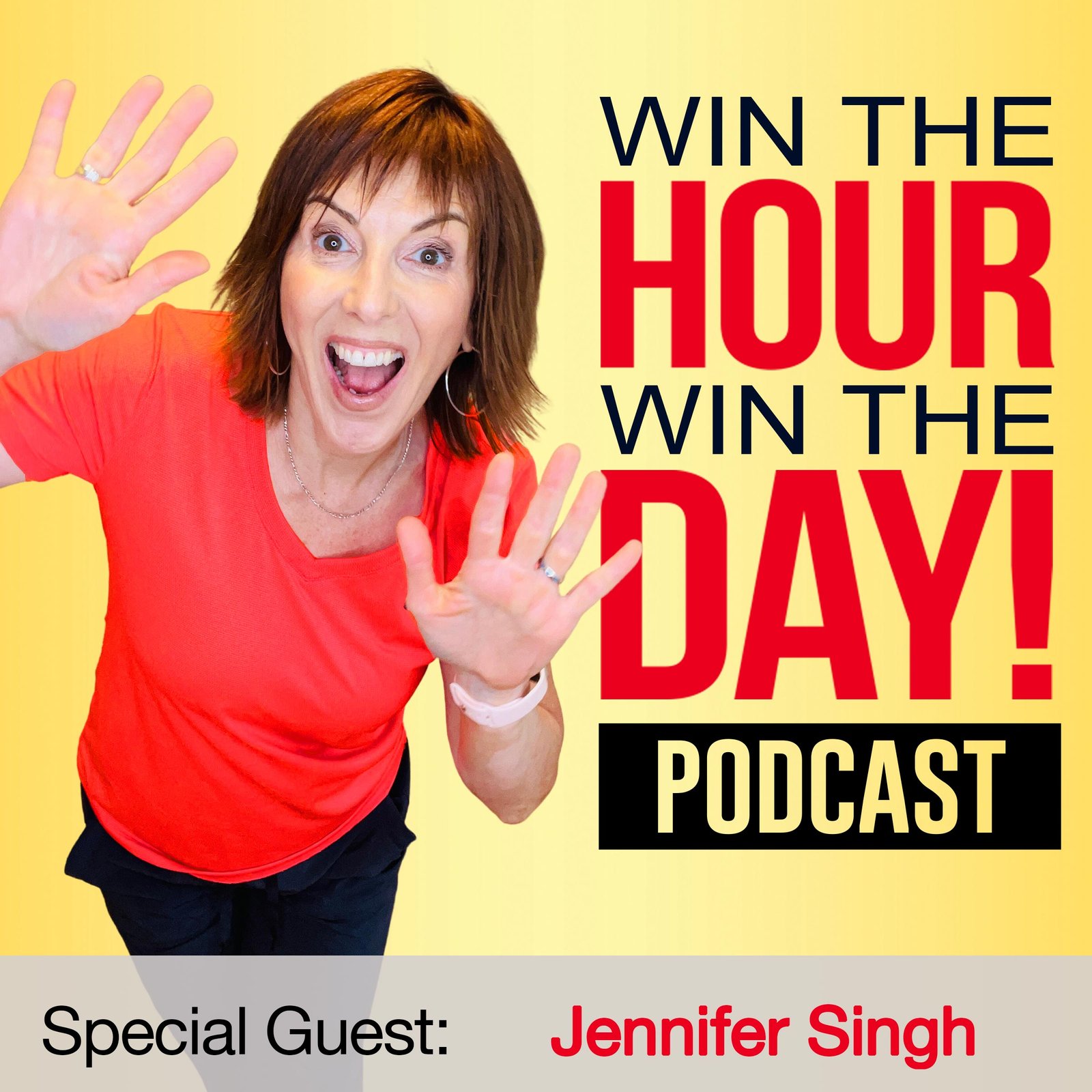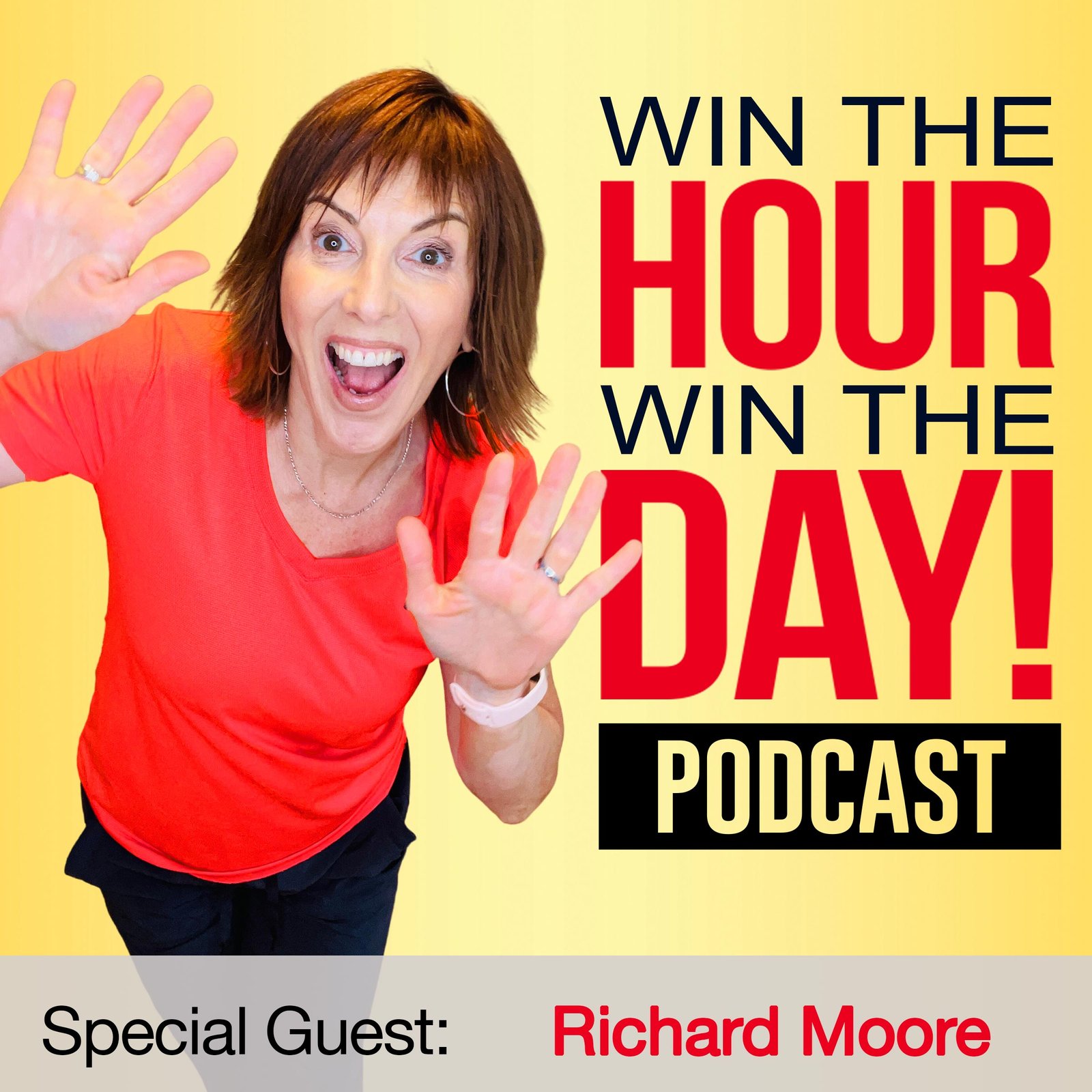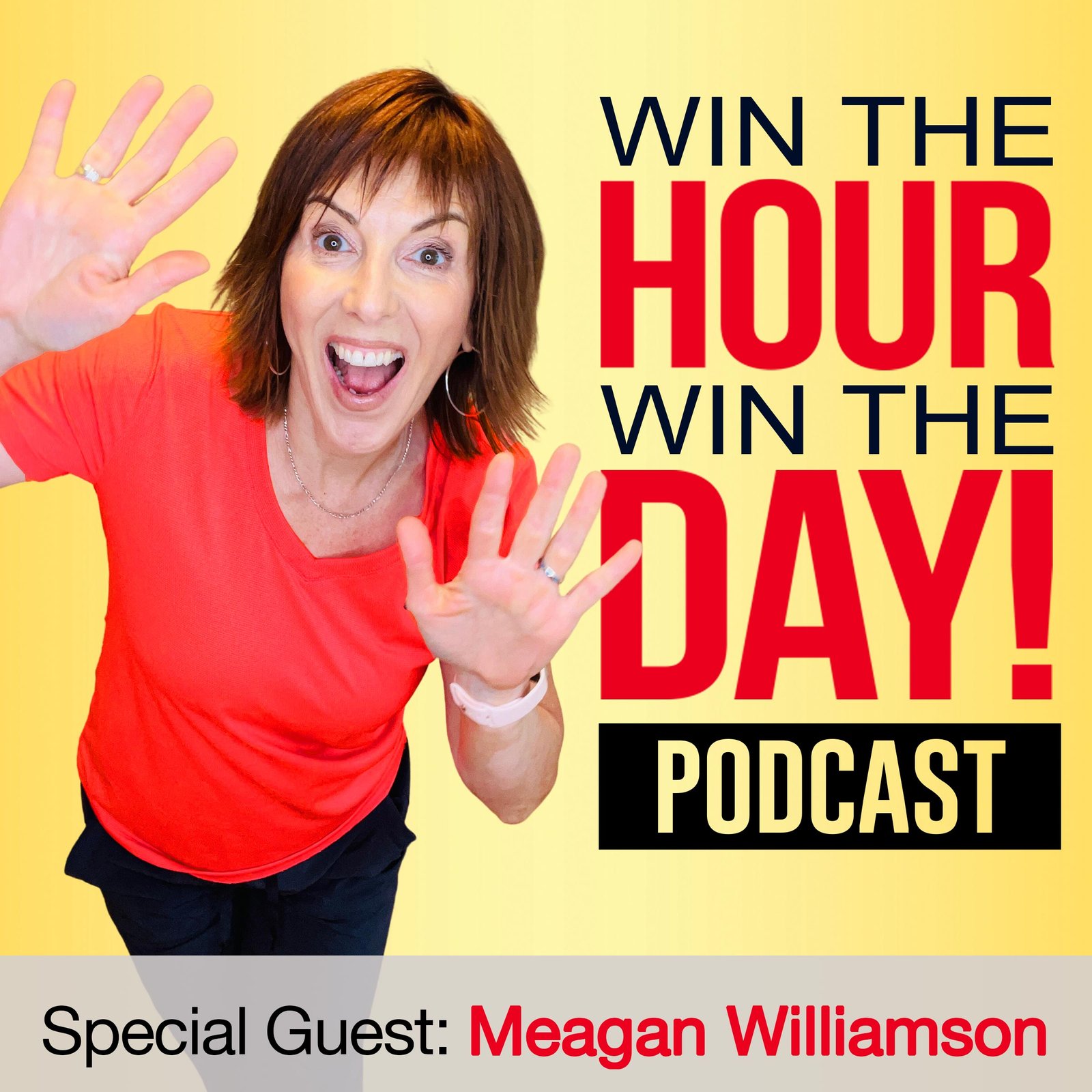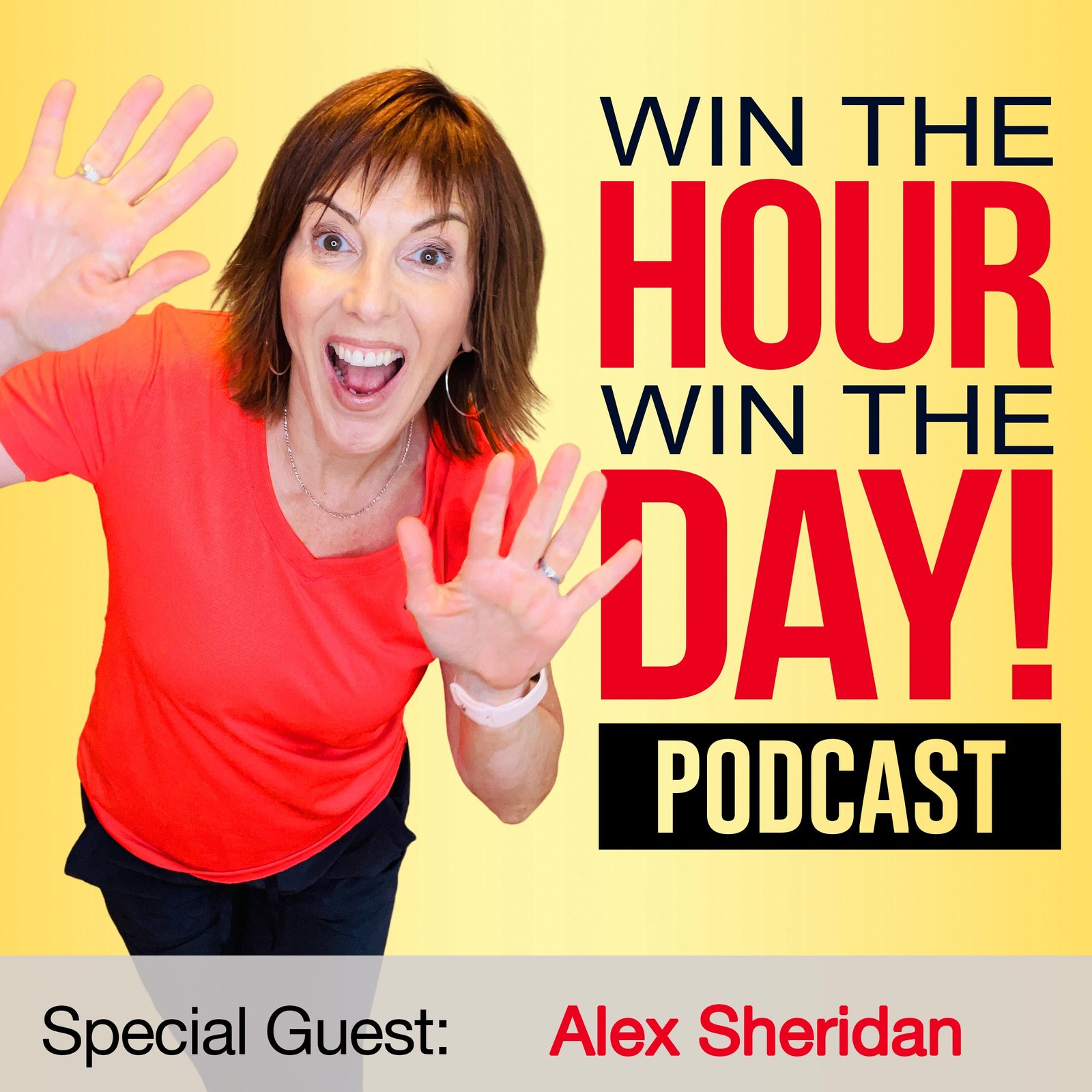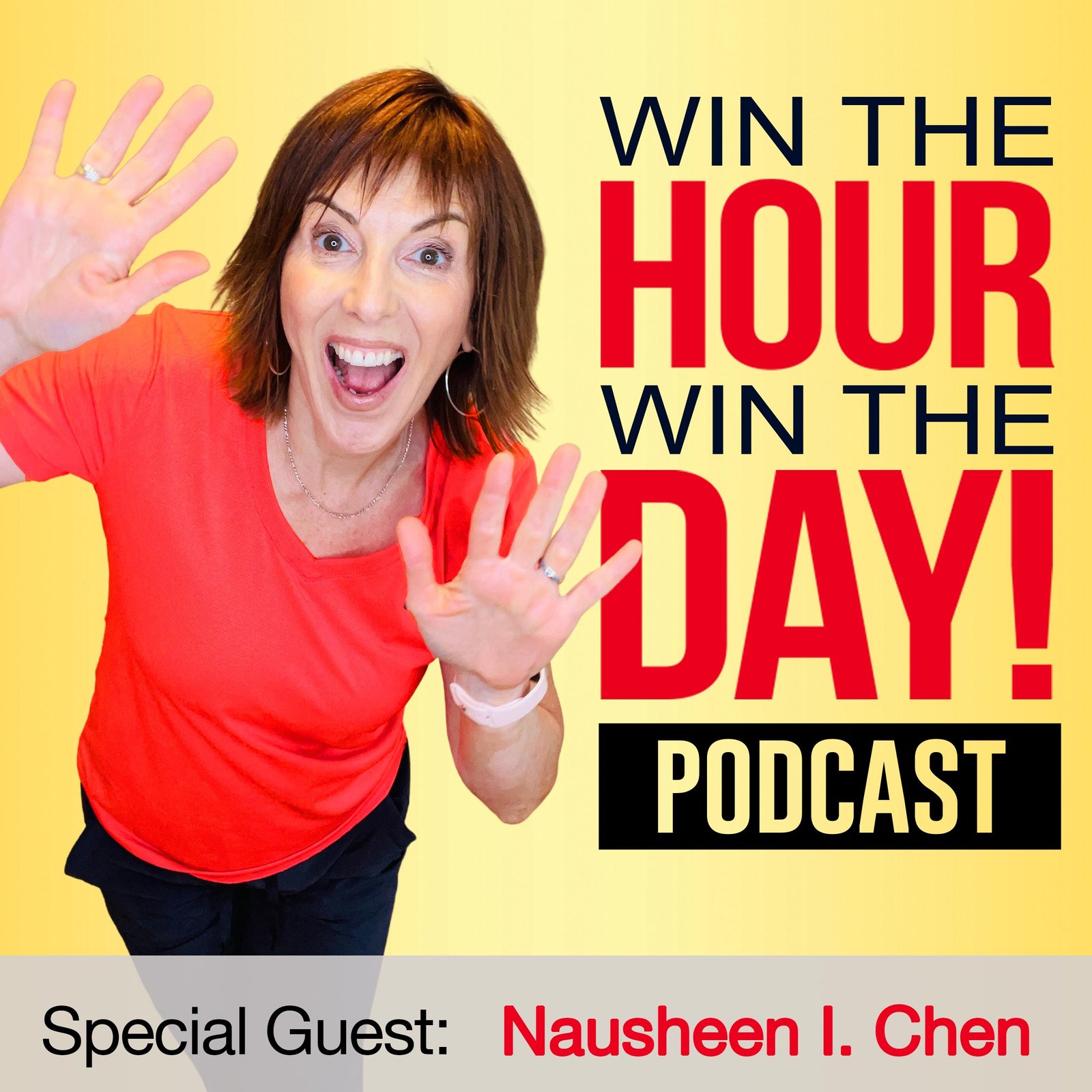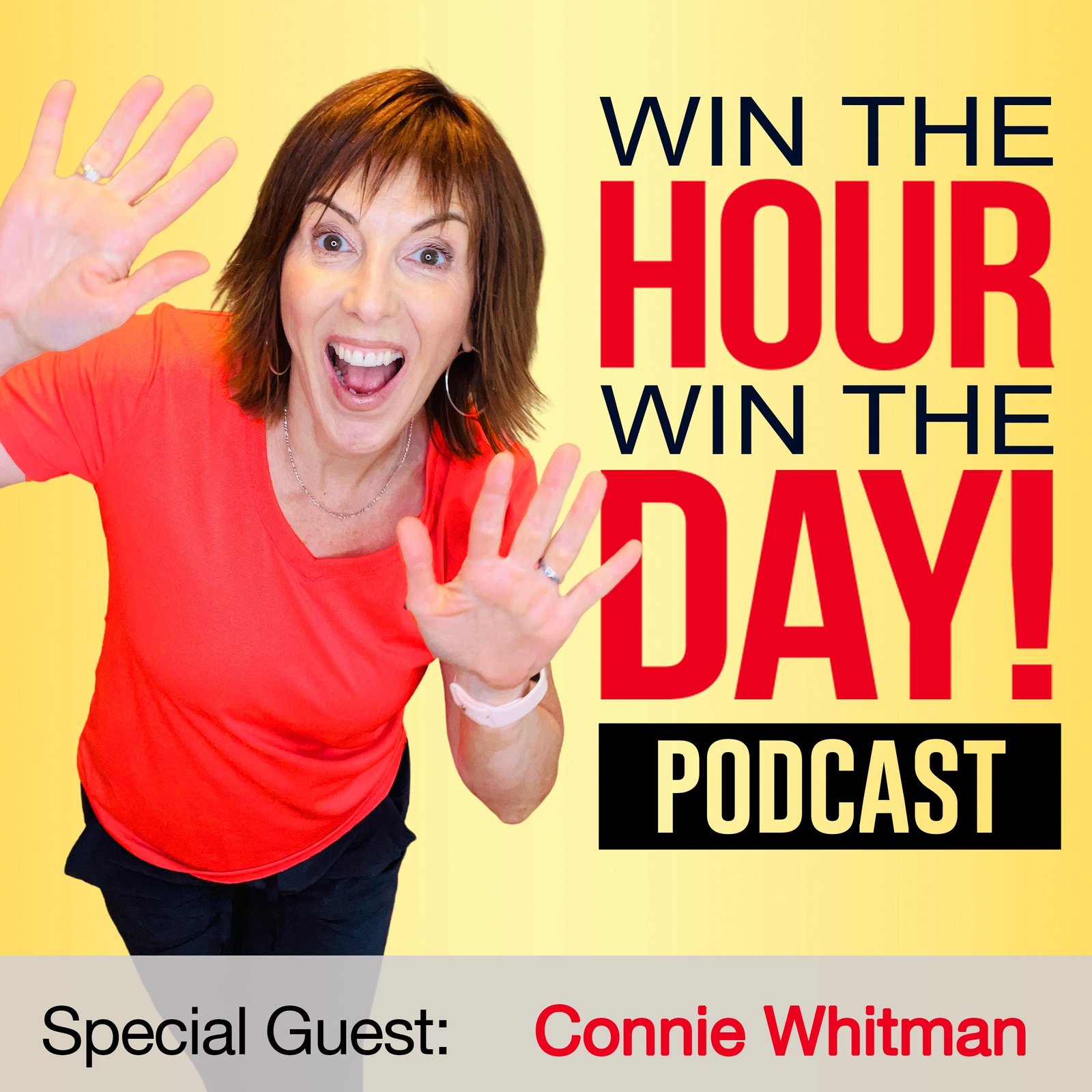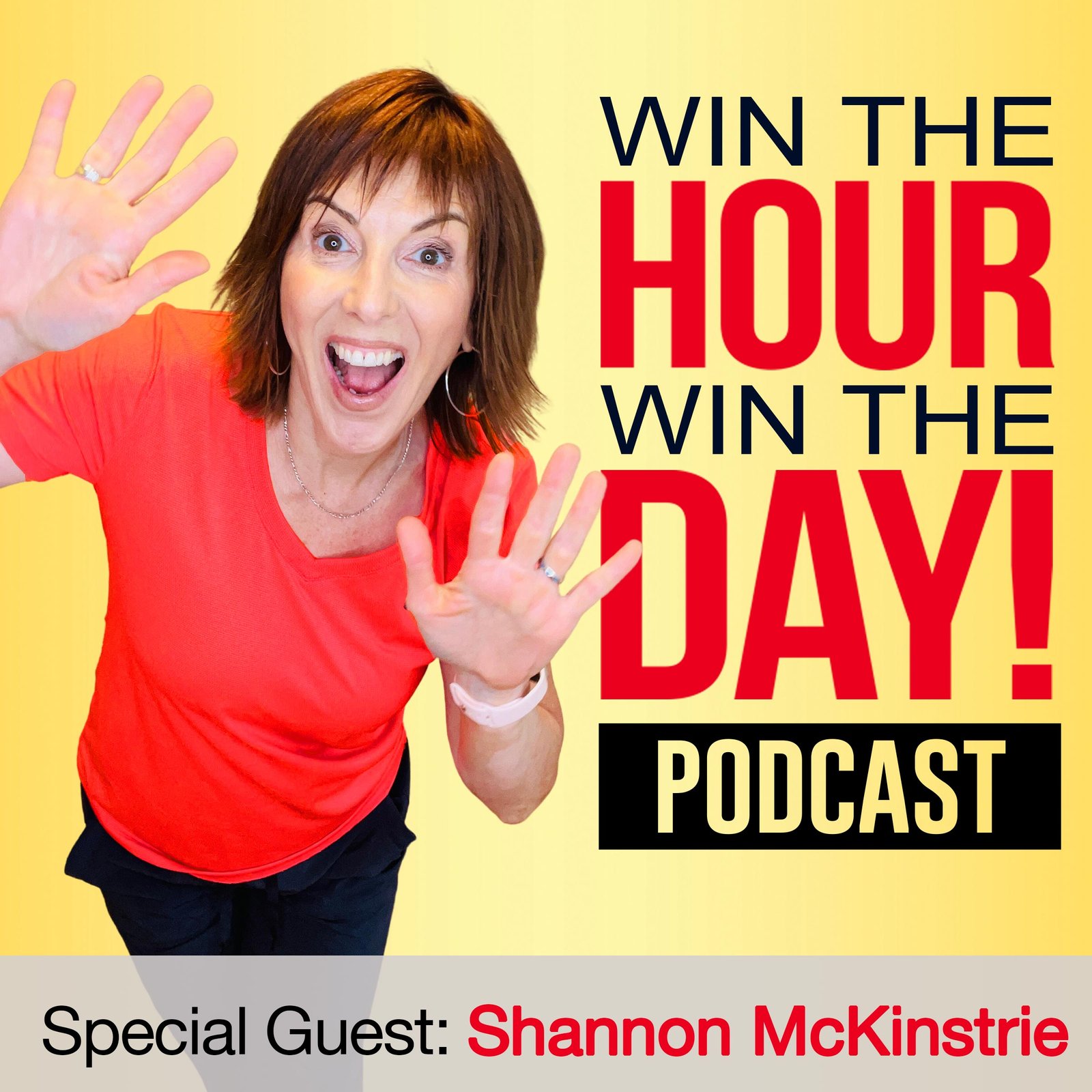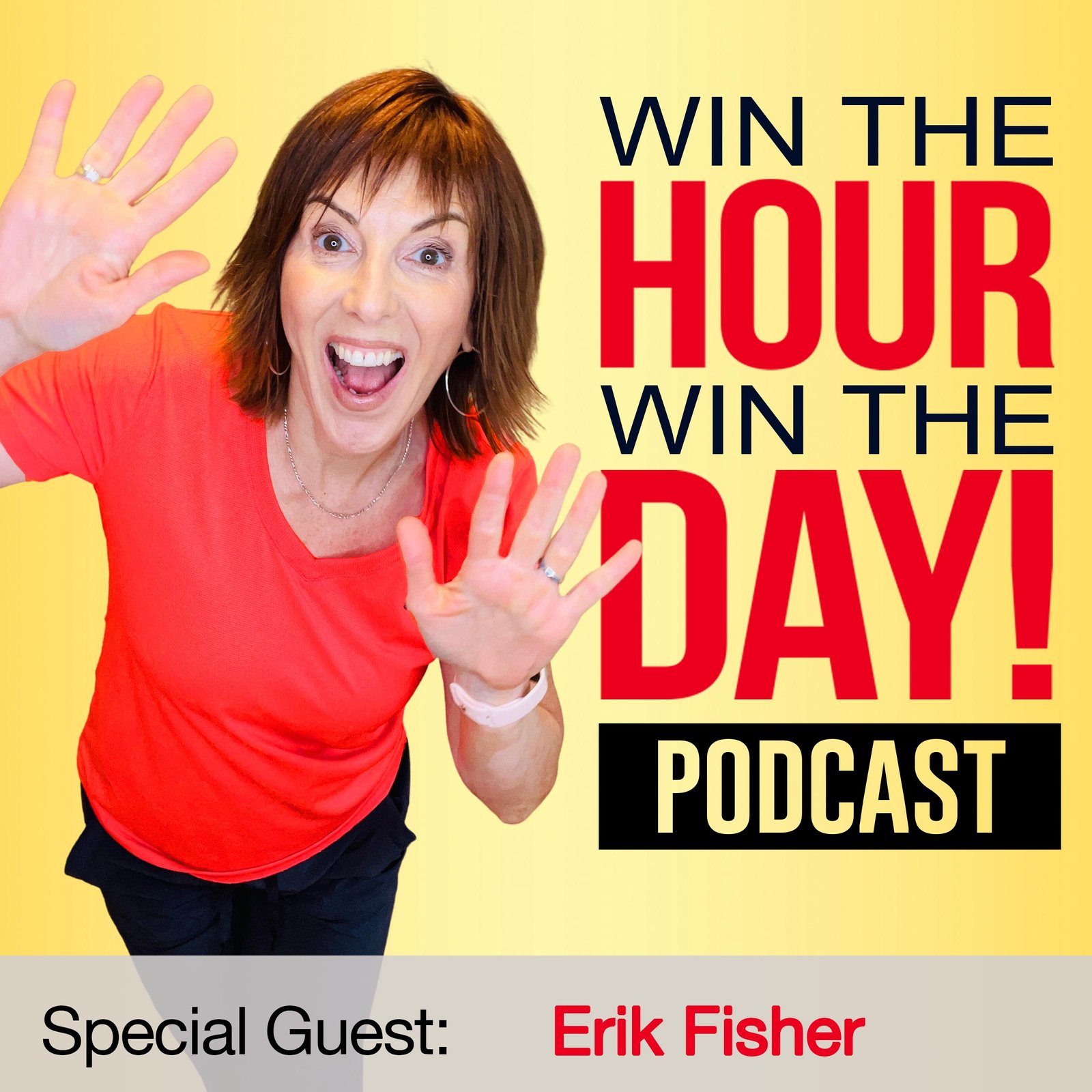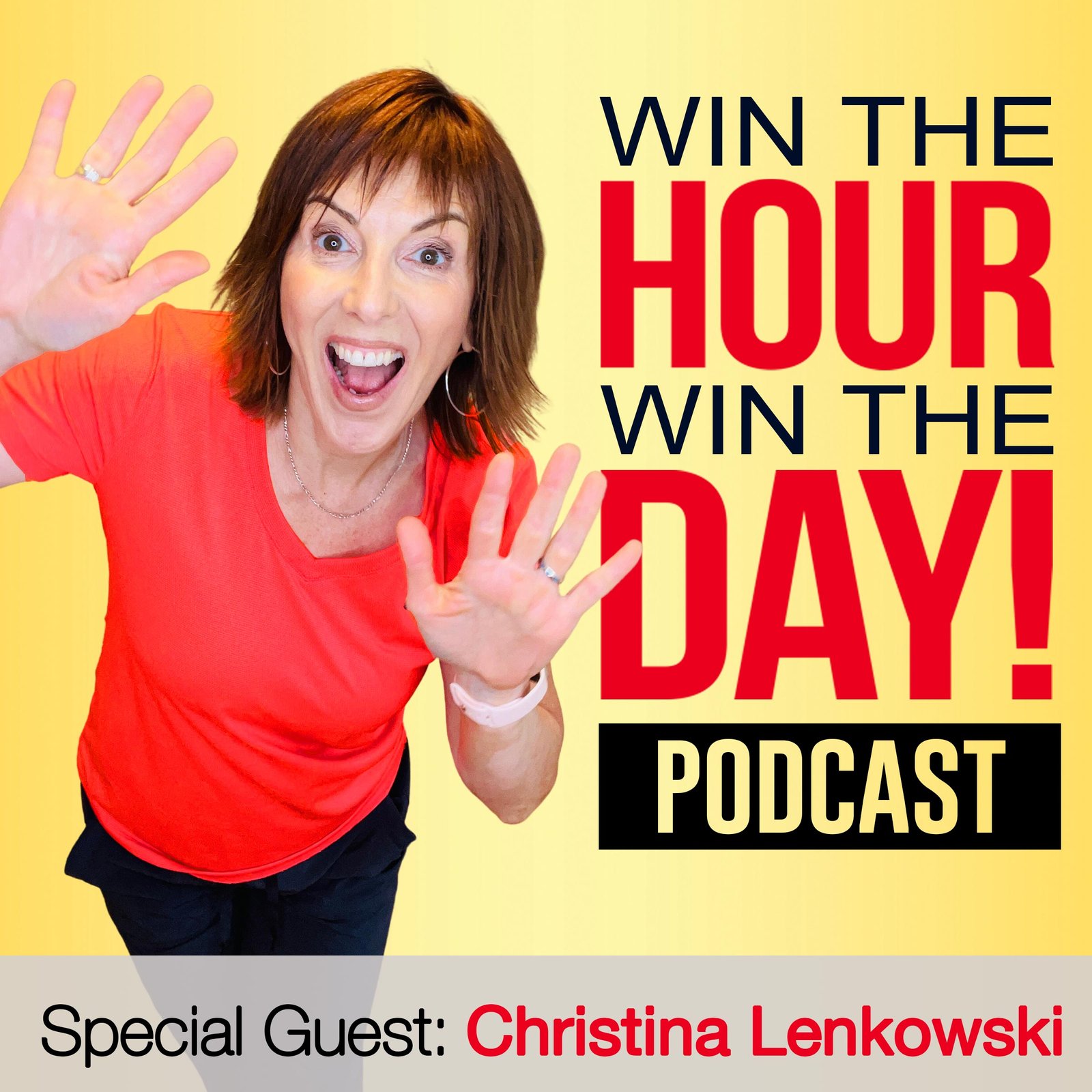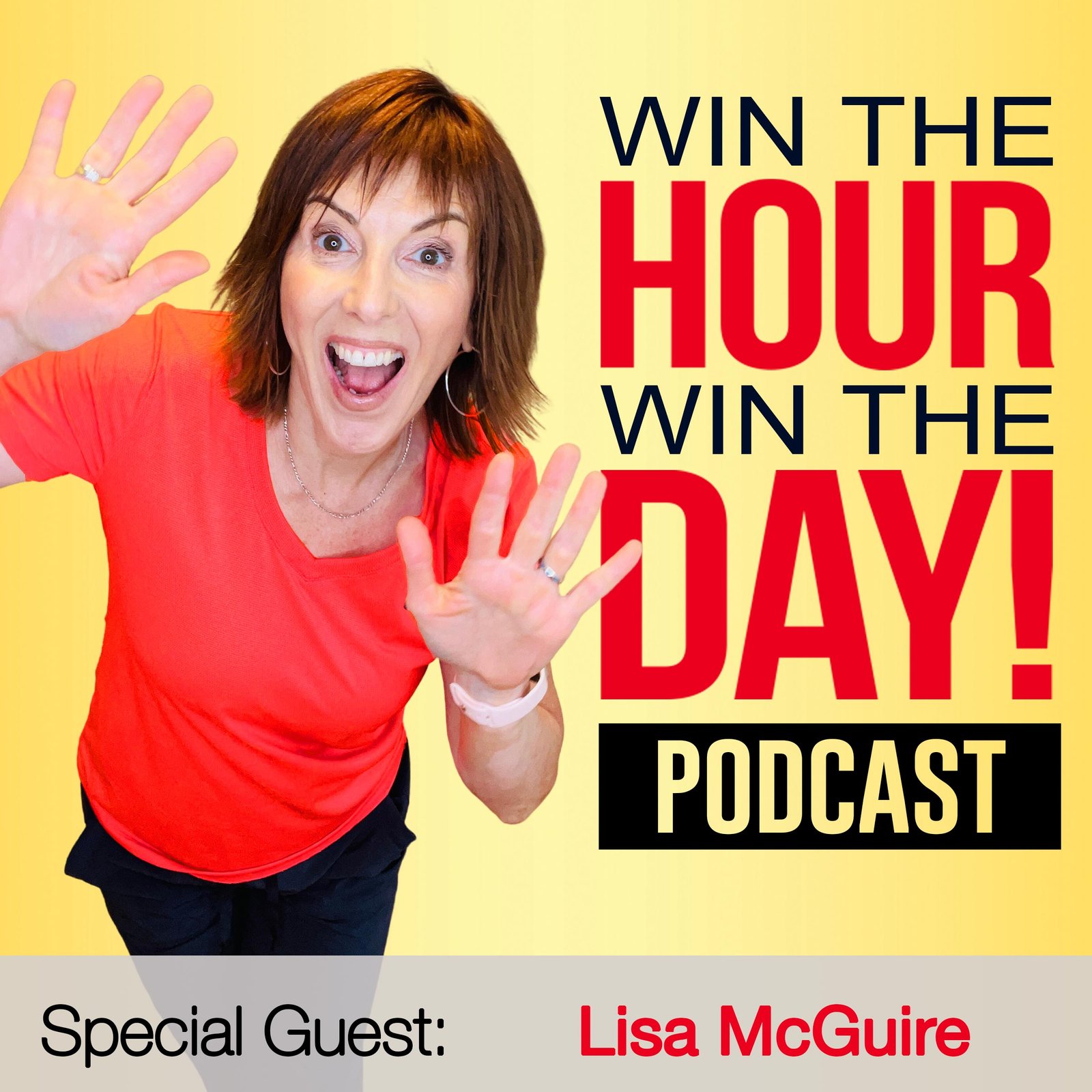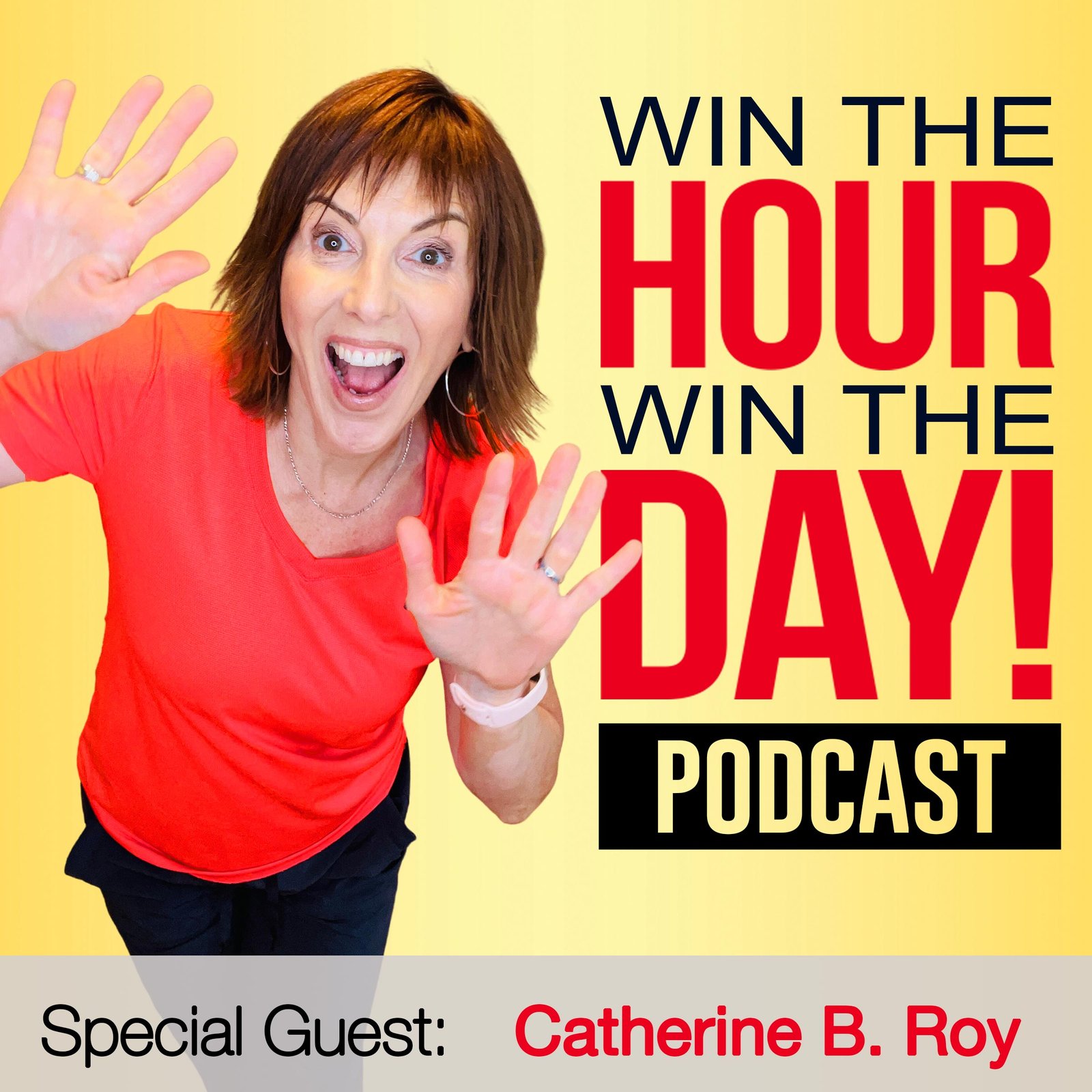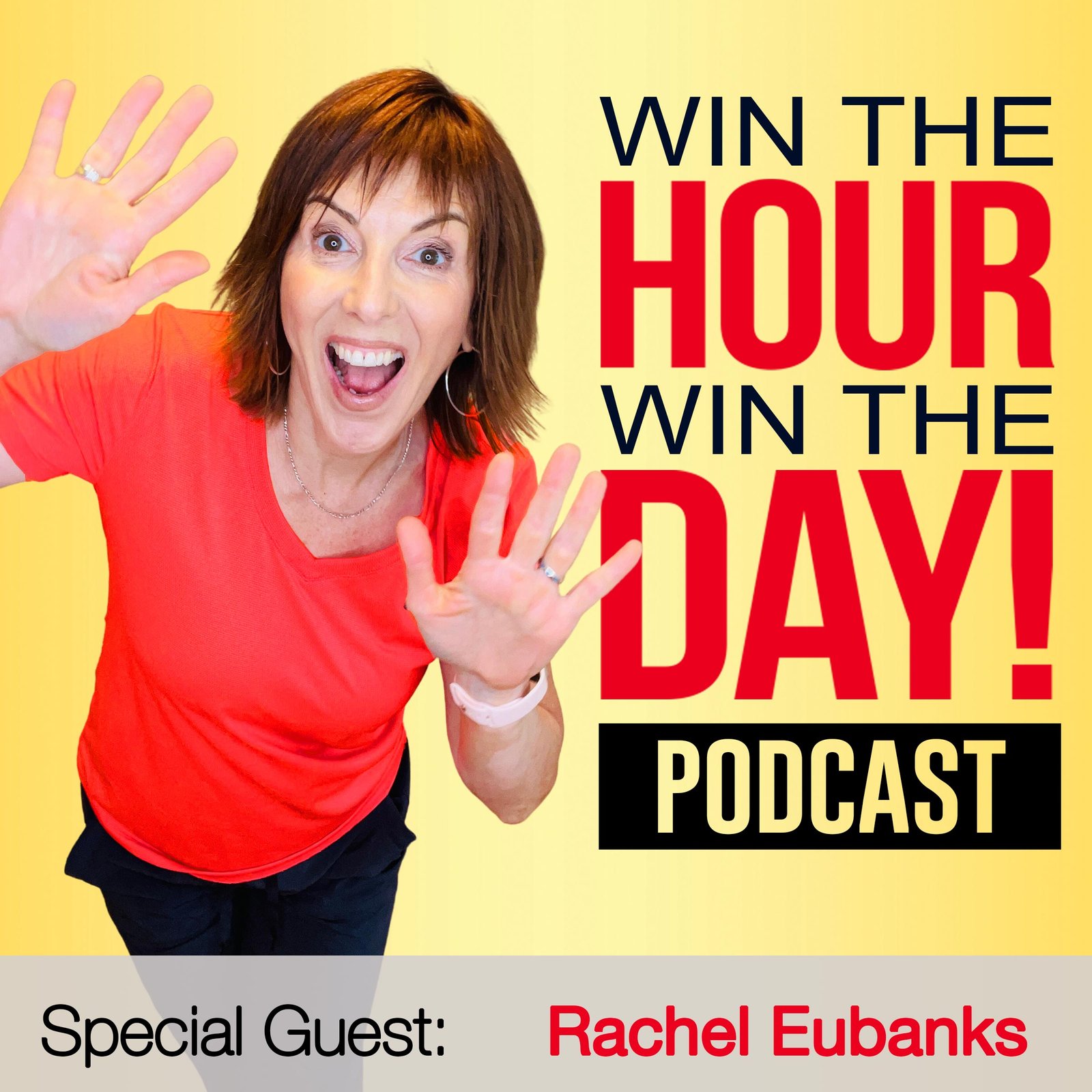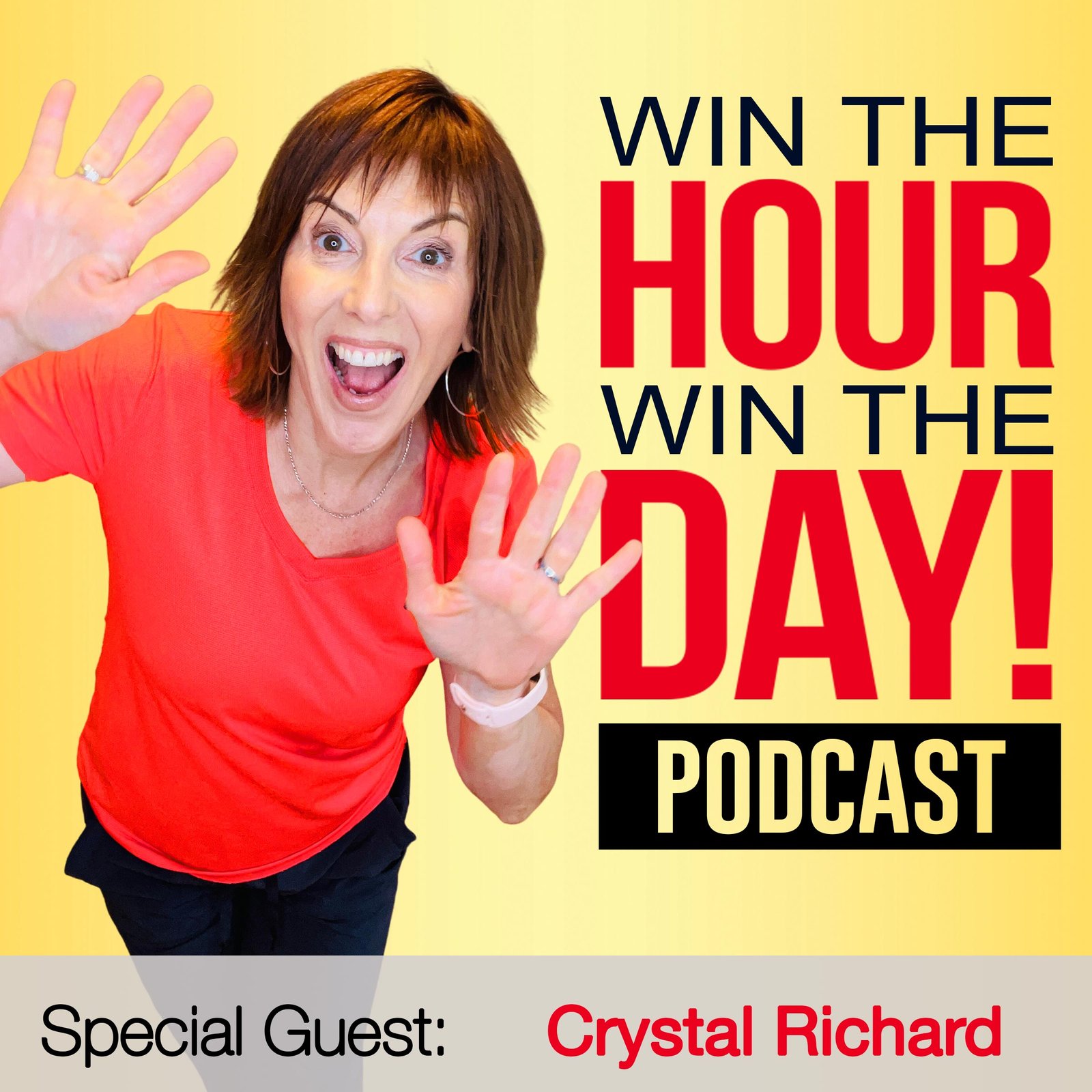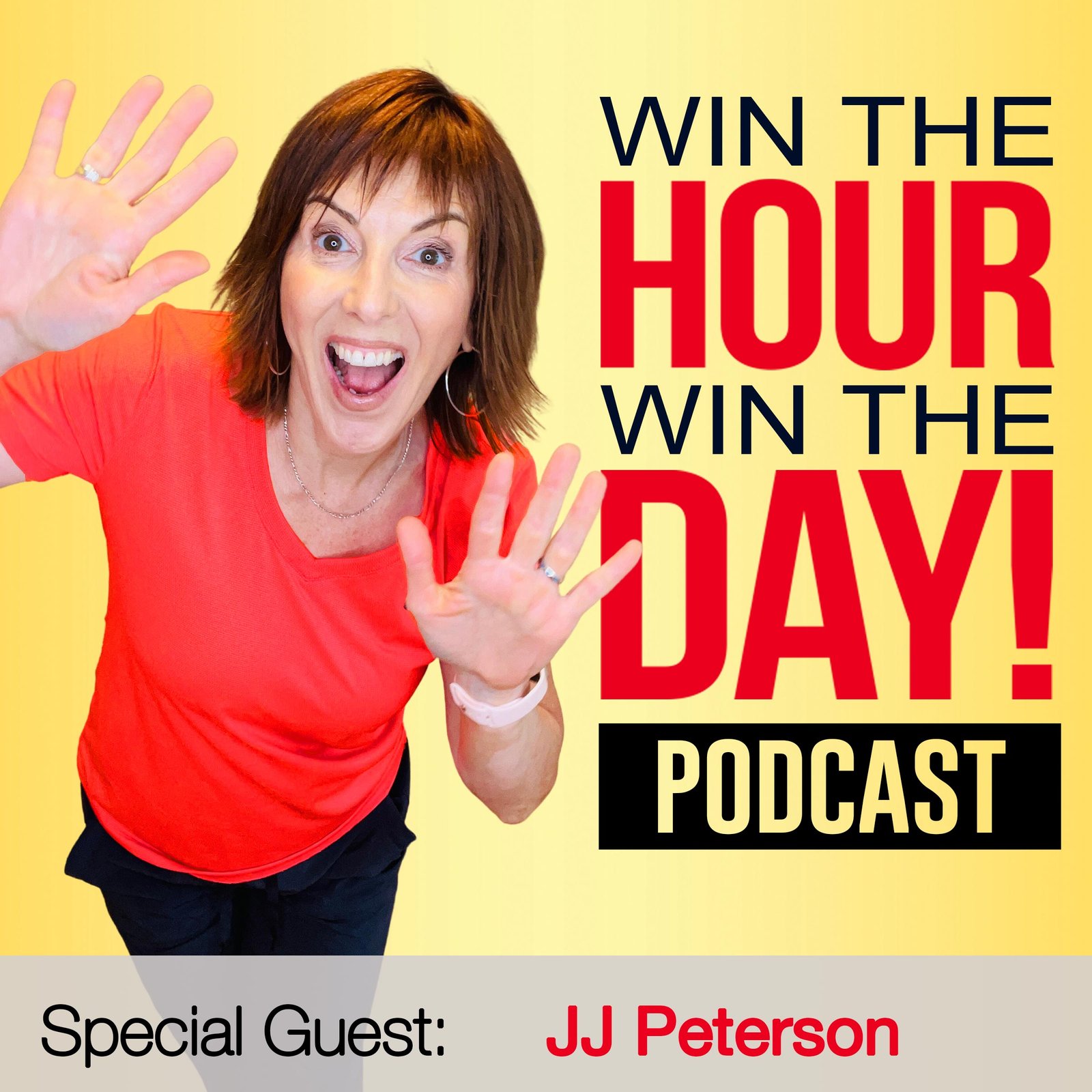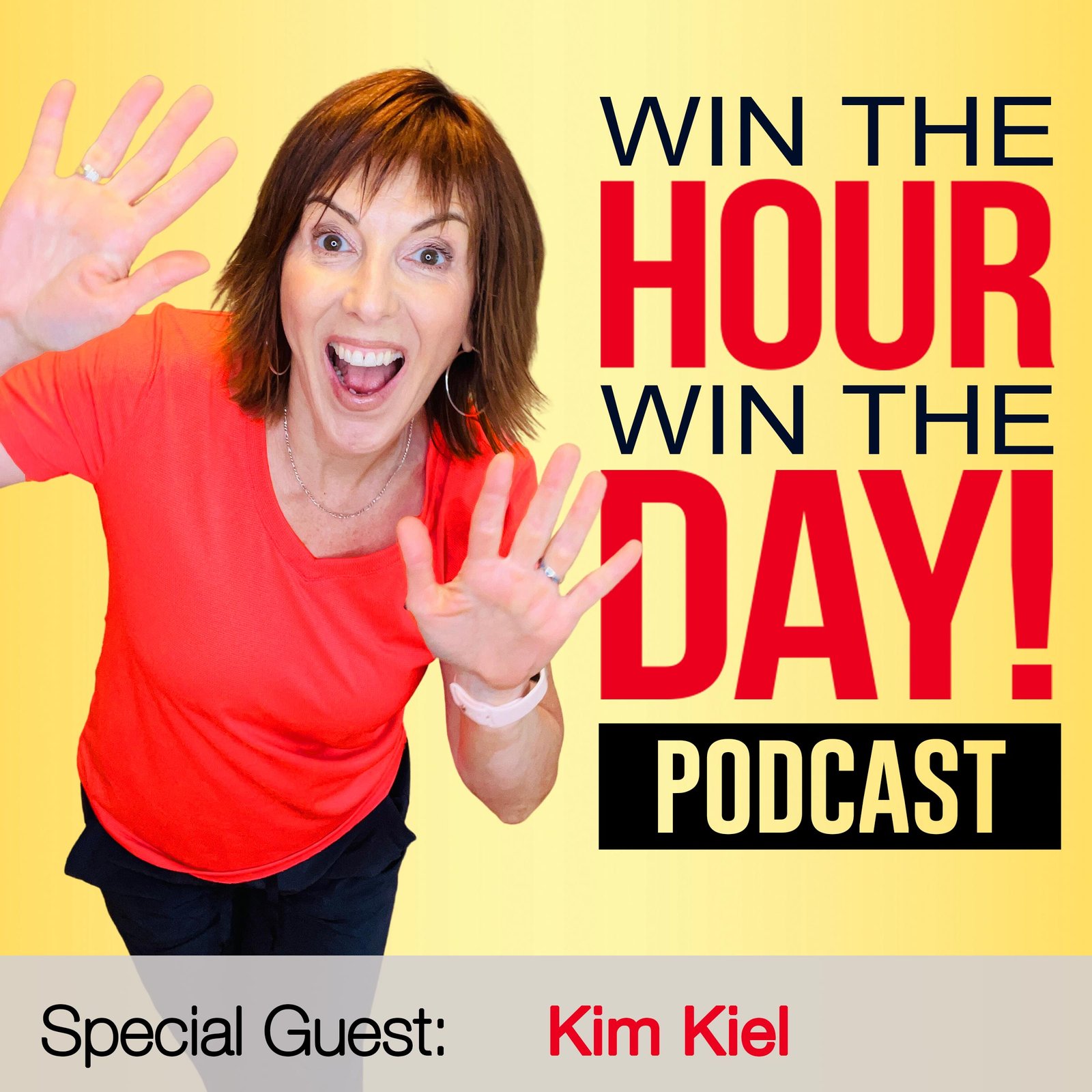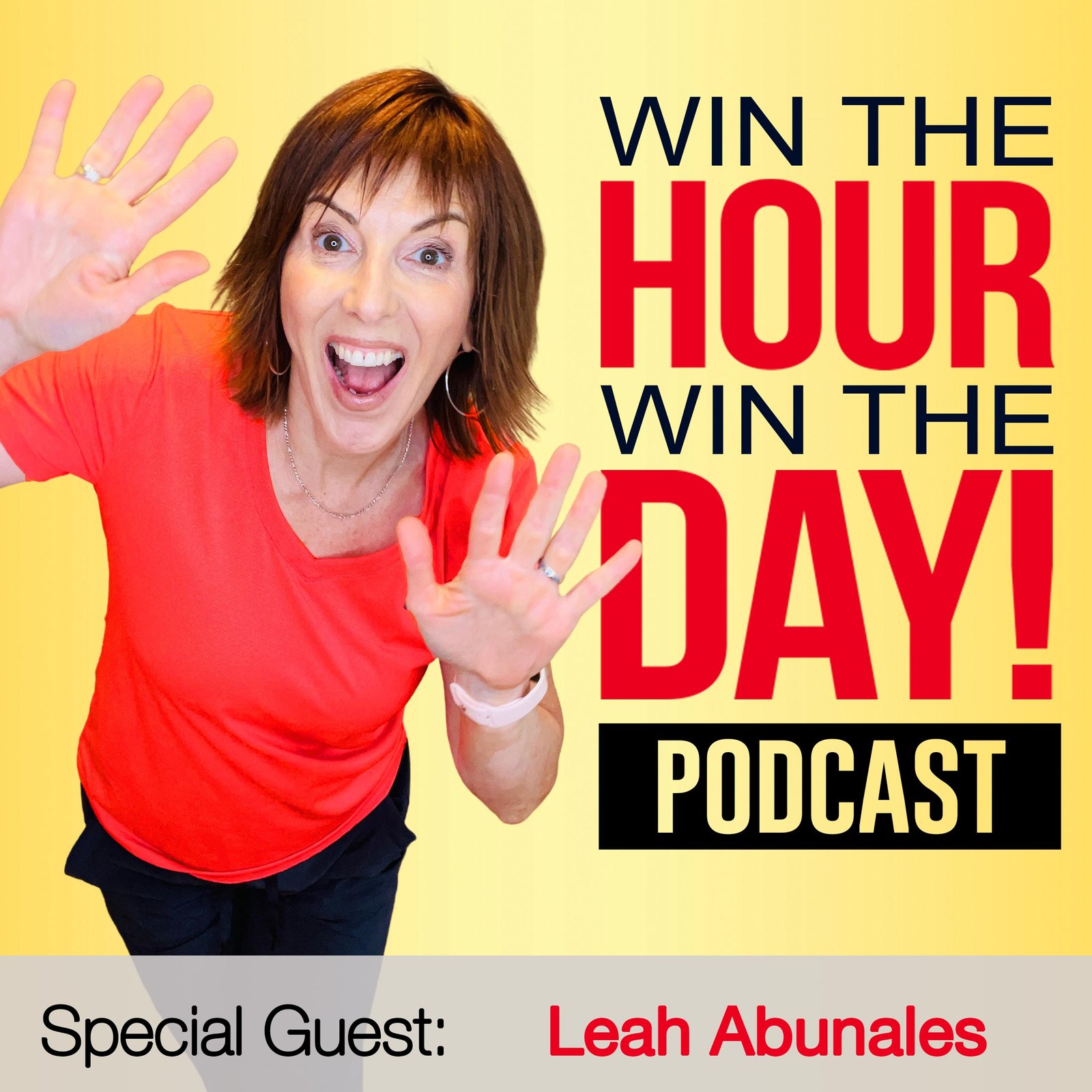Episode Summary This week’s episode of Win The Hour, Win The Day Podcast is...
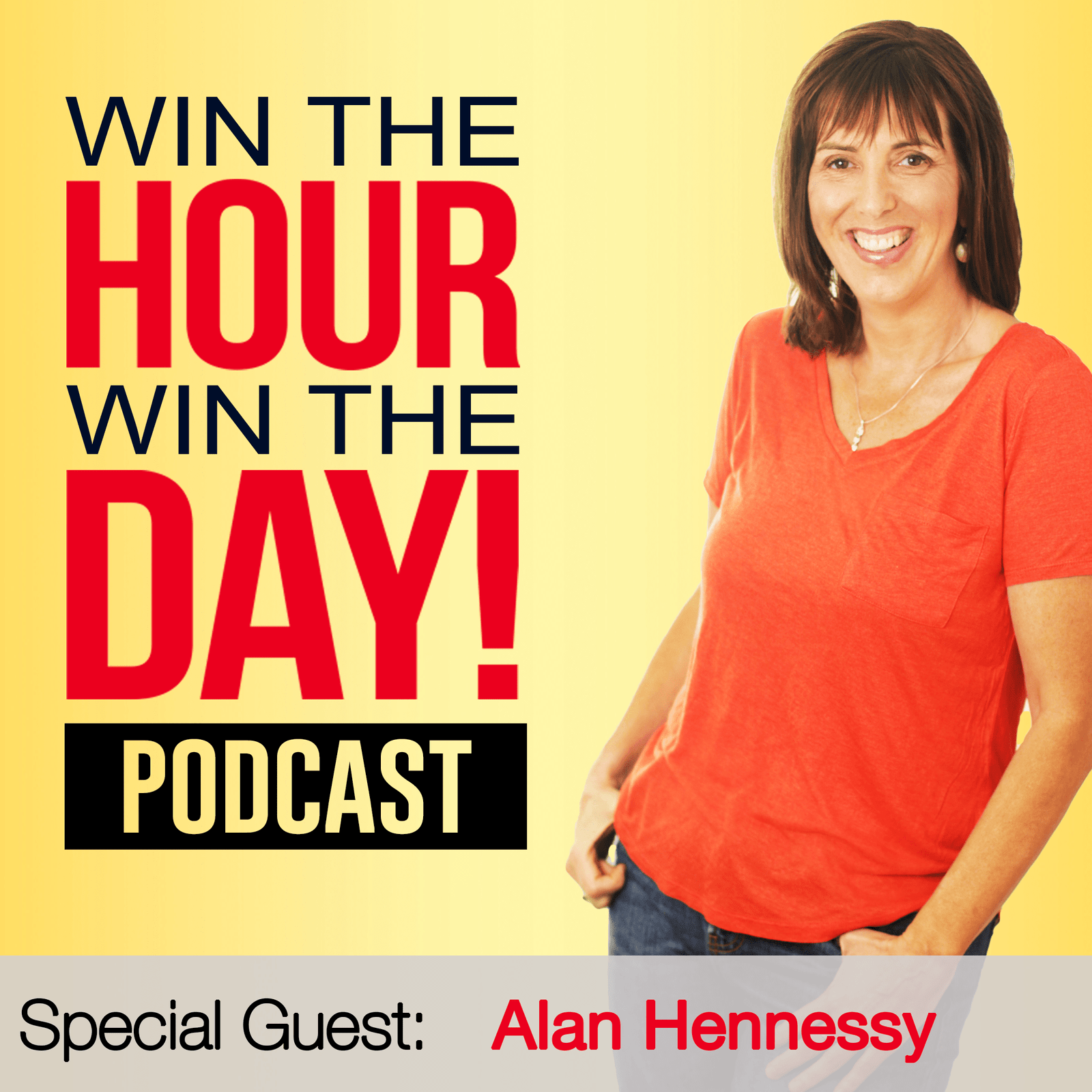
Are You Ready For Your Next Big Win?
Know your entrepreneur personality and I’ll take it from there!
Recent Podcast Episodes
Preventing Burnout with Smart Work Tools! with Kris Ward
Episode Summary This week’s episode of Win The Hour, Win The Day Podcast is...
Master Social Selling: Heidi Medina’s Strategies for Engagement
Episode Summary This week’s episode of Win The Hour, Win The Day Podcast is...
Boost Productivity and Master Storytelling! with AmondaRose Igoe
Episode Summary This week’s episode of Win The Hour, Win The Day Podcast is...
Master Video Marketing: Top Tips for Entrepreneurs with Dan Bennett
Episode Summary This week’s episode of Win The Hour, Win The Day Podcast is...
Boost Your LinkedIn Strategy with AI Tools for Enhanced Productivity! with Joe Apfelbaum
Episode Summary This week’s episode of Win The Hour, Win The Day Podcast is...
Mastering Personal Branding with NLP Techniques! with Olesija Saue
Episode Summary This week’s episode of Win The Hour, Win The Day Podcast is...
Innovative Lead Generation and Email Automation Secrets with Jennie Wright
Episode Summary This week’s episode of Win The Hour, Win The Day Podcast is...
PR Strategies for Diverse Entrepreneurial Impact! with Jennifer Singh
Episode Summary This week’s episode of Win The Hour, Win The Day Podcast is...
Convert More Clients on LinkedIn with Richard Moore
Episode Summary This week’s episode of Win The Hour, Win The Day Podcast is...
Master Business Growth on Pinterest with Meagan Williamson
Episode Summary This week’s episode of Win The Hour, Win The Day Podcast is...
24/7 Sales Boost: Video Marketing Secrets with Alex Sheridan
Episode Summary This week’s episode of Win The Hour, Win The Day Podcast is...
Master Public Speaking Tips with Nausheen Chen!
Episode Summary This week’s episode of Win The Hour, Win The Day Podcast is...
Beating The Burnout With Connie Whitman’s Success Story
Episode Summary This week’s episode of Win The Hour, Win The Day Podcast interviews,...
Craft Your Social Media Content Strategy With Shannon McKinstrie
Episode Summary This week’s episode of Win The Hour, Win The Day Podcast is...
Boost Your Productivity with AI Tools: A Deep Dive with Erik Fisher
Episode Summary This week’s episode of Win The Hour, Win The Day Podcast is...
Boost Visibility: Repurpose Content and Leverage Podcasts With Christina Lenkowski
Episode Summary This week’s episode of Win The Hour, Win The Day Podcast is...
Master Personal Branding & Storytelling with Lisa McGuire
Episode Summary This week’s episode of Win The Hour, Win The Day Podcast is...
Boost Business on LinkedIn with Catherine B. Roy’s Strategies
Episode Summary This week’s episode of Win The Hour, Win The Day Podcast is...
Scale Your Business: Optimizing Virtual Assistant Services with Kris Ward & Rachel Eubanks
Episode Summary This week’s episode of Win The Hour, Win The Day Podcast is...
Affordable PR Mastery: Crystal Richard Unveils Modern Techniques
Episode Summary This week’s episode of Win The Hour, Win The Day Podcast is...
Mastering Business Storytelling with JJ Peterson’s Guide
Episode Summary This week’s episode of Win The Hour, Win The Day Podcast is...
Revamp Your About Page: Guide to Personal Branding
Episode Summary This week’s episode of Win The Hour, Win The Day Podcast is...
LinkedIn Mastery and Video Marketing Secrets with Alex Sheridan
Episode Summary This week’s episode of Win The Hour, Win The Day Podcast interviews,...
The Systems and Processes Playbook: Insider Secrets to Streamlining Your Small Business with Leah Abunales
Episode Summary This week’s episode of Win The Hour, Win The Day Podcast interviews,...
How To Get Bigger Results in Social Media Today! with Alan Hennessy
Episode Summary
You can find Alan Hennessy at:
Website: https://kompassmedia.ie/
Email: alan@kompassmedia.ie
LinkedIn: https://www.linkedin.com/in/alanhennessy/
Twitter: https://twitter.com/Kompassmedia
Facebook: https://www.facebook.com/kompassmedia.ie
Instagram: https://www.instagram.com/kompassmedia.ie/
Win The Hour Win The Day
https://winthehourwintheday.com
Alan Hennessy Podcast Transcription
START[00:04:13]Kris Ward: Hey, everyone. Welcome to another episode of Win The Hour, Win The Day, and I am your host, Kris Ward.
[00:04:18] And I am lucky to tell you that we have Alan Hennessy in the house. Alan. Okay. Alan is a digital marketer and he is going to talk to us today about how we could be more effective on LinkedIn. There’s been a lot of conversation about LinkedIn. It really… lately, it really seems to be, I don’t know. I think.
[00:04:39] Is it where the cool kids are hanging out, Alan? I don’t know, but it seems to be changing the game compared to where it was five years ago. So Alan, welcome to the show.
[00:04:48]Alan Hennessy: Thank you, Kris. I’m delighted to be here. It’s an honor to be on your podcast and on your videos just to be spending time with you is all good.
[00:04:58]Kris Ward: Well, Alan compliments will get you absolutely everywhere. So we’re off to a great start. That will get you anything. Okay. Let’s talk about, I know you said something I thought was quite powerful. You talked about creating your social currency. I loved how that sounded and it does make it seem, I don’t know, much more empowering than the grunge work of just trying to keep up with your social media work.
[00:05:22] Right. So let’s start there. What is it we’re looking at wrong or differently or poorly when we’re looking at social media, because you come from a much more positive positioning. And we’re going to talk about LinkedIn, but I know the work you do with your digital marketing and this can really transfer to any of the social platforms.
[00:05:42]Alan Hennessy: Yeah, it can. And that is the thing about it. And like, I suppose the way I would look at it, a lot of social media and I’m a bit of a geek when it comes to social media and digital marketing. Cause I like to know what goes on in the background of it, not just what we post or when we post or how we post or how we interact, it’s about the psychology behind it.
[00:06:06] And I think if you can understand the psychology behind social media, you’re onto a very good thing for the simple reason that if you can understand how your customers or how your followers, or how, whatever shape or form that comes in, interacts on social media. It makes your job so much easier.
[00:06:30] So understanding and having a social currency iss imperative to what you do. Because when we start looking at social currency, we start looking at how we’re interacting as a brand or as an individual with social media. And this is, as you said, it goes across all of the different platforms.
[00:06:52]Kris Ward: Yeah, I think I misquoted the top of the beginning. Cause I know we had talked a little bit about LinkedIn, but I think we’ll be labeling this show something very different. It’s not a LinkedIn specialty. So let’s pull back here. Okay. So we don’t know what we don’t know. Where do we start?
[00:07:06] What are the missteps that so many of us make with our social? Again, our social media work, creating our currency. I got to stop calling it work, creating our currency. What is it we could be doing better?
[00:07:1/]Alan Hennessy: Yeah. So look, when we talk about social media currency, social currency is basically, it allows the brands to drive higher customer loyalty and add social proof.
[00:07:31] And this in turn, of course, leads to sales and referrals. Alright, so. That’s the big caveat here, but I think at the end of the day, especially with social media, especially social currency, it’s your influence online. It’s how you project yourself, because if we’re just… Yeah. Like, it’s like, if you look at it this way, if we’re just taking all the time and we’re not giving, it’s not going to help, it’s not going to help build our brand.
[00:08:00] It’s not going to help us to invest and gain more traction online because once a brand starts to be known for their light and their trust. They will then start to create that social currency where people will be, they will, I suppose, in the sense they become advocates and they’re very loyal to what you do. And sometimes they will even defend you.
[00:08:23]Kris Ward: Right. Okay. So let me jump in here for two quick seconds. So one is the brand. So we say brand, sometimes you start to think about bigger brands and we’re talking to service-based entrepreneurs that have been in business at least five years. So we’re speaking exactly to you.
[00:08:38] Entrepreneurs, small teams, I don’t love the word small business, but hello, whatever. I’m going to come up with a new word for that. So the brand is you, so let’s not confuse that with a bigger brand. Cause sometimes we get caught on that and say, well, that’s not me. Then when you say, you know, we can’t just be taking, what is it you mean by that?
[00:08:56] Because. Oooh so many of us get stuck on, oh, okay. Put this post up. And I got three likes and two comments. So I got a message one time. The sidebar information here got a message from somebody once. And she, it was actually on LinkedIn and she sent me a message and she had said, she’d been following me for like, I don’t know, a year.
[00:09:13] And she highlighted all these things I had done. And she said, I said, oh wow, that’s fantastic. Thanks so much for chiming in and whatever. I said, I, you know, cause I hadn’t seen her do anything. I don’t didn’t know her at all. And I don’t have a huge interaction with people on the platforms. And she said, Kris, you just have never, you don’t know who’s following you and what impact you have.
[00:09:34] And I’m like, oh, that’s a good point. Cause we all go to, oh, we’ve been trained to go, oh, how many likes? Okay. No, I got whatever nobody’s cares about this. I got no likes. So when you talk about taking, what do you mean? And because we’re all just chasing these numbers.
[00:09:49]Alan Hennessy: But we’re all chasing numbers. And, and I think, you know, and I go against the grain when I say is to stop looking at the numbers and start looking at the social end of this, because at the end of the day, that’s what we’re talking about.
[00:10:01] And what I mean by taking is that we will push out content and hopefully it’s going to stick somewhere. And instead of that, we should be interacting with people that were following and connecting with them and then start to have conversations because we got to remember that social media is two words, it’s social and it’s media.
[00:10:21] And the social part is about that interaction. It’s about building relationships. And I know it’s a cliche and everyone says we have to build relationships, but I think in order for us to move to the next stage and anything, we have to start building on them relationships. So we have to start having that interaction. So it has to be a give and take. Yeah.
[00:10:46]Kris Ward: Let me just jump in. Cause you know what, you gave me a really big aha moment. I often when I’m scrolling and I was like, okay, I do my best to engage with, especially like you know, if I met you and we’re connecting a lot of tongue, I like your stuff.
[00:11:01] And then I guess as a cheat, I’m going to say in the comments, like, I’ll do a couple emojis, boom, boom, boom. There you go. And whatever. But that doesn’t show that I actually read your post. So when you just said something a minute ago, it’s about building relationships and all that other stuff. And I know we hear that all the time, but sometimes you hear something and somebody says it differently.
[00:11:23] So all of a sudden I realized like if I’m going to take two seconds to put a couple emojis under posts, I can take five seconds and write a comment about something you said above, which is going to have a much more powerful impact because I’m showing you, I read it and I’m starting a dialogue.
[00:11:39]Alan Hennessy: And problem that, and this is where the social currency comes from our point of view is…
[00:11:46] is that okay? So you have now engaged with me. You have now put, a comment in there. You’ve said whether you liked the post or you’ve given your viewpoint on the post. If it’s just the same. I really enjoyed reading this, this particular post by all you can, all you have to do there is to start that conversation is literally to go back and say, what part did you like about this post?
[00:12:09] What part did, what part appealed to you? What did you learn from this? You can start that conversation because what happens there is if you’re reading my posts and I turn around and I answer you back, you’re going to start calling them. I got an answer back from Alan. Alan’s after starting to talk to me.
[00:12:29] Wow. So it shows that you care about them as an individual, but you also care about their opinion. Plus, we can also learn so much from these interactions.
[00:12:41]Kris Ward: Yeah, but what I’m hearing from you, Alan is I’m hearing something deeper and different. So I get it. If somebody likes one of my posts, but that’s where I got stuck.
[00:12:49] I would be chasing numbers and going, okay, did this make an impact? Cause you only got this much interaction. Right. And you can control that and you can only beat yourself up for it. So what I’m hearing from you, what I’m learning from you, which I haven’t really given any thought before, and I’m really having a profound moment here is what I can control is how I interact.
[00:13:10] You know, and of course who I interact with, but how I interact. So instead of just glossing over and trying to like a hundred posts really quickly, if I made comments and had a meaningful engagement on 10, cause it’s really about the social, it’s really about the relationship. And I made a meaningful comment on your posts and you’re like, it’s not a matter of, oh, Kris liked my post.
[00:13:31] It’s like, oh, Kris made a comment. I commented back. We had a conversation. Oh my gosh. I happened to be out. Great, whatever. Now we’re having a dialogue, which really is what social media is supposed to be. It’s networking, but we’re all chasing the numbers. And just for me, anyhow, just how much, you know, just going at a higher level instead of getting deeper.
So it’s better to zone in and have more meaningful interactions. Then this is, uh, this is the big lesson I’m learning, right now.
[00:13:59]Alan Hennessy: Yeah. I mean it is, and it really is. It’s so important. It’s so important to have that interaction because we look at social media like, okay, we can post our content on our websites.
[00:14:10] We can create our podcasts. We can do our live videos. We can do all of this. We can record whatever we want to do. But when we put it out on social media, we’re looking for that interaction. We’re looking for people to view it and understand, and hopefully learn something from us. But also gain something, gain some knowledge from us and look at us in a different light.
[00:14:35] And so, okay. So I look at Alan Hennessy every time we post something because he always shares some interaction here. I always say, share it some posts or some piece of content that is a value to me. Right. So now you’re starting to gain that loyalty, but you’re also gaining that advocacy because what happens is with social currency, if I like Kris’s posts and I think it’s good, I will then reshare that with my community.
[00:15:06] So you’re automatically starting to build out, you know, I call it something sometimes I call it and I think it’s a great way to put it as your secret army. They’re your secret marketing army, because what they’re doing is they’re helping you to get more traction online, which in turn feeds back into what you do, but it’s a 50-50 relationship.
[00:15:31] We have to be started keeping an eye on them and making sure that we keep up to date with what’s going on there. I’m not saying to you that you have to sit there. At a computer and go, okay. I have to check to see what Kris wrote. I have to check what Alan wrote. It’s not like that. We will automatically scroll.
[00:15:49] We live in a world of on demand and we do it and we want to do it. And that’s how it works because now we’re starting to just go, okay, I’m highlighting that the social currency works. It’s a piece of marketing that works within your business and it’s a crucial piece of marketing.
[00:16:09]Kris Ward: If we don’t skim over it. Okay. So here’s the two big things I’ve learned from you right now. Engagement for me, what I learned is. It could be more purposeful and it’s better to be more purposeful. It’s better to have purposeful relationships versus volume. Great. And then another tip is resharing sort of, it gets reciprocal and they really appreciate when you reshare and they notice when you do that.
[00:16:34] So that’s another way where I can control. You know, I don’t like the word control, but I have more investment or direction to my social media versus just sitting there hoping people like my post. Right. So that’s two big ways that I could engage more effectively and sustain these or improve relationships.
[00:16:53] All right. So what’s some other things that you feel we could be doing that we’re missing the opportunities on?
[00:17:00]Alan Hennessy: With regards to, I suppose there’s a lot of different things that are going on, but let’s say, we’re just for example, we’ll take LinkedIn and we’ll look at the types of what we can do on LinkedIn.
[00:17:16] LinkedIn is about connecting. It’s about reaching out and it’s about bears and relationships, and we all know this, this is what… it’s a business to business platform, but it gives you the opportunity to get in front of people and to talk to them. And that you would not have been able to talk to before.
[00:17:36] And this goes back to building that social currency, but it also talks about social proofing. So you’ve got to sort of have some sort of proof that yes, you are active on the platform. It also, you needs to all that social proof is, is like what you doing? Cause most people, when they will go to LinkedIn, if they can, if someone reaches out to them to connect with them, their own first thing is they’re going to the platform.
[00:18:01] They’re going to their profile to see who they are, what they’re about. So that’s social proof needs to be there. So building on that social proof is very important. And once people start seeing that you’re sharing people’s content that say, well, this person is starting to… I like this person. He has an interest in what we’re talking about.
[00:18:22]Kris Ward: Oh, okay. Hold on here. So what you’re saying is, oh, that’s another, that’s a different angle of something that we’re, when we talk about going to the LinkedIn profile. So I, my mind automatically thinks that we’re gonna check out, oh, Alan’s history. Alan did this, Alan’s company. And what you’re saying too, and I do this all the time.
[00:18:39] You’re right. I do this. And, but I now see the power of this is I will go and look at their posts, what they are doing and what they’re commenting on. Right. And see what they’re about, because that does tell a lot about them. But I was just doing that, but I didn’t understand the power of that because it really is telling who you kind of, what you laugh at or what you think is important or your messaging or the conversations you’re having with other people. It really does tell a lot about you.
[00:19:07]Alan Hennessy: Yeah. And it also shows that it also gives you an opportunity to home in on particular areas. If you wanted to talk to that person, say, oh, I see you’re very interested in whatever it may be. And now, you know, you have an opportunity. So you’re using also as a research tool.
[00:19:26] So it’s a both. So from, I suppose, from the solo entrepreneur, the small business owner who would be listening to this type of your program is that they need to start to say, okay, well, if someone’s going to come and look at my profile, I need to have something there. That’s going to entice them to look at me a little bit further.
[00:19:47] It’s their research. It’s research of what we do. You know, we used to years, the summer, like years ago, we used to have cold calls. We pick up the phone say, oh, can I speak to the marketing manager? Now we can go on LinkedIn. Now we can go on social media and we can find these people and find out what it is that we can connect to. What is it about?
[00:20:09]Kris Ward: I never really thought about that, Alan, and how much it tells your story of who you’re talking to, what you’re talking about. And I know I’ve checked on people. Somebody might refer me to somebody or something, and I look on LinkedIn and then I check their posts and they’ve got like one post per two months.
[00:20:25] I’m like, okay. They’re not… like to me. I feel like they’re not taking, they’re not taking this seriously. Or they’re not a viable business. Cause they’re hardly, I don’t know where they are, but they’re not here. And whether that’s an appropriate judgment or not, there’s not a lot for me. It does give me a snapshot of what they’re doing about their business.
[00:20:43] Right. So I didn’t really think of that as how telling it is, so even when now people see my profile and they go over and see my posts, that I’m resharing stuff, where I make meaningful comments versus just, here’s my annoying emojis that I’ll be decreasing on now. Okay. So we’re looking at the same thing. We’ve looked at it a hundred times, but you’re making me see it all very differently.
[00:21:06]Alan Hennessy: Yeah. And the other thing about that is, and it’s just a point that you touched on, is this like where you were saying, oh, well, they haven’t posted in two months on, say on LinkedIn. Okay. That may not be their platform of choice. That may not be, so that could be, it could be Instagram, it could be Twitter.
[00:21:24] So you automatically get to see, okay, well maybe they’re not on LinkedIn. Maybe they’re more active on say the types of say Twitter. Okay. Check the Twitter, check their Twitter feed. You can find this information in their LinkedIn profile because if you click on the contact us piece on the top of the page, you’ll see if they have a Twitter.
[00:21:48] If they’ve a Twitter handle, you’ll see a lot to be in there cause they love to put it in. So now we go over to Twitter and now I look and say, oh, well look, this guy only posted an hour ago on Twitter. So this is, and he’s posted. So you can find that a lot of information and you can follow it. You know, it’s like we follow the breadcrumbs, you see where they are, where they’re going, where the, what they’re doing now, you’re moving into a Twitter sphere.
[00:22:16] You’re going. Okay. Well, what are they talking about on Twitter? Because they may be talking about something differently on LinkedIn. They may not like we’ve had businesses where they’ve said they can’t get the LinkedIn thing, but I love Twitter or I can get the Twitter thing on. I love Instagram. So we’re starting on.
[00:22:33] Okay. Well that’s where, and you’ve got to remember. You’ve got to also take this into consideration as well Kris is, if you like where you are. Obviously my big social platform would be LinkedIn and Twitter. They’re the two places that I really enjoy working on. And I’m good at them.
[00:22:53] The reason why I’m good at them is because I enjoy it. And that’s the thing. So you’ve also got to remember what it is that you enjoy? So if you enjoy Instagram, you’re going to spend a lot more time. You’re going to be a lot more focused on that. Okay. And that is a very important part because you’ve got to enjoy it as much as anything else, social media can’t be a chore for you to have to do every week, every day.
[00:23:21] It has to be something that you go, okay, I can find out information. I can use this to enhance what I’m doing. It can help me to find new customers. It can help me to connect with new people. And it’s not a case of where you’re selling to them, people. It could be. A whole range of different opportunities.
[00:23:40] You could be doing collaborations, you could be going on a podcast. You could be, you know, there’s a huge amount of information that you can find out and it’s a nice way to do it.
[00:23:52]Kris Ward: I think, too what you’re teaching me, which again, I call myself a recovering Russia Holick and you know, the nature of my work.
[00:23:59] It’s all about being in execution mode and not rushing and, you know, doing quality work and always creating. But I think still, there, I mean, recovery. There’s still things that seep in. And so I think what happens is it’s like, oh, you hop on and you rush through the social media and what you’re teaching me is.
[00:24:18] Okay. So I do think predominantly my audience is on LinkedIn. However, if I’m looking to learn something about maybe a show that I’m going to be on or whatever, you’re right. I can follow the breadcrumbs and say, all right, they’re there. They don’t have a big presence on LinkedIn. Let’s follow their breadcrumbs.
[00:24:33] I just learned all this stuff about them on Twitter. And that’s great because I’m going to be on their show. Right. So diving a little bit deeper, deeper, and all the information is there. And of course, too, in that example, I just gave you if I’m going to now be on Alan’s show. And he’s not very much on LinkedIn, but I follow you over to Twitter.
[00:24:49] And now I start commenting, you know, we’re going to have a warmup engagement before I’m even on your show. So again, back to the social, instead of going to the high level, Make these more purposeful instead of like, have I, have I done a bunch of things if I done my 10 minutes on LinkedIn this morning done, you know? Yeah. Cause it really is about networking.
[00:25:11]Alan Hennessy: It’s something like something like,what you teach is, you know, winning that time back. And I always say, any question, whenever I’m trying to win people, I’ll always say, what is the first thing you do when you go into the office or you go to your home office, what is the first thing that you do?
[00:25:28] And they go, I opened up my emails and I go, okay. That’s basic. They just basically do. That’s the first thing everyone does is, when they turn on the computer, that they check their emails to see what they’ve missed. Okay. If you spent 10 minutes then after that on social media. So whether that be LinkedIn or wherever it is that you want to be, and looking at that and looking at the people that are on it and looking at the content and looking what’s in your newsfeed, you’re going to come across something that’s a real interest to you.
[00:26:00] Now. You don’t necessarily have to say, okay, well, I’m going to spend a half an hour here and talk all about this. You can say, okay, I’m going to save that. Am I going to reply to that later? When I have more time. So, you know, you can really work this in to your day as much as you want. And you look like you’re the expert when it comes to that.
[00:26:21]Kris Ward: Well, you know, you bring up a really good point cause back in the day, hello, it sounds like dinosaurs roamed the earth like a hundred years ago, but it wasn’t 10 plus years ago, you’d have to go to a breakfast thing in your area at the chamber of commerce. And I found that annoying having to get up at six o’clock the morning and have a conversational breakfast with somebody at seven o’clock eating food
[00:26:42] I didn’t want hoping I got to sit beside someone that I could have an enjoyable business conversation with. Right. So it didn’t, I didn’t enjoy the time that that stole from me. Good. Two hours there. So yes, we could do more meaningful social media. Right. Instead of just being a chore to hop in and out of, I have been awakened.
You wait, Alan, I’m going to be all kinds of conversational and charming when you can set my day.
[00:27:07]Alan Hennessy: But it really is. You’d be amazed at unlike, like I give you, for instance, I put out a post, oh, this is a last year sometime. I can’t remember what it was. I only webs last year, but I put out this post and I got this message.
[00:27:20] I got a comment on the post. And this guy was very, very disgruntled with what I’d said. And he told me in no uncertain terms. So I saw this and I went, okay, now, you know, some people’s reaction when we said, oh, just to lead and you won’t, nobody will see it. But I went, no, no, no. There’s no point of me deleting that because he could come back tenfold on that.
[00:27:45] So what I’ve done is I went in and I said, excuse me. I said, can you tell me exactly what you disagree with within this post? And he came back and I turned and I said, well, that’s not the way this post was supposed to be taken. So he says maybe if you had to taken a view… if you read it this way and took it in this context, right.
[00:28:05] He came back and he says, oh, oh, I see your point now. So I said, let’s take this offline. The story doesn’t end there because six months later I was actually working with the guy.
[00:28:18]Kris Ward: See, I would have, I’ll be honest. I would’ve deleted it. Not because I was afraid somebody see it. I wouldn’t delete it. Cause I think.
[00:28:26] Like, if you’re just going to start stopping your scroll and frankly bitching at me, that’s not a conversation. Like I would assume. Ah, you’re not for me. So it would have deleted it by the tone. Like you don’t need to be attacking. You could just say you disagree to that, but you’re right. I have found it from a business perspective.
When you see somebody complain on Twitter or whatever, it’s not the complaint, it’s how the company handles it. That shows who they are.
[00:28:52]Alan Hennessy: But it’s also to do with understanding, is this just a troll or is this, you know, it’s this keyboard warrior or is this actually someone who is actually.
[00:29:05] You know, disagreeing with your point, which is, which is fine. Cause we do, we all do it every day. You have to have the yang of the yang. If it doesn’t, it doesn’t work. But as I said, it’s about understanding that. Yes. Okay. I think he might’ve got the wrong end of the stick with this.
[00:29:24] And then be able to do that but it actually turned out when we spoke. One said like, yeah, isn’t amazing that, that’s how we came. And it was just true stop and I’m thinking I’m going okay. But carry on conversations. If someone comments, start that conversation and bring it, bring it on, you know what I mean? It’s so valuable.
[00:29:51]Kris Ward: Alan time, just flies with you. I can’t believe where the… we’re done. You know what? It was really awakening though. A big takeaway for me, because like I said, I was just putting emojis in there and I don’t, I should know better. Cause I’ll tell you, she doesn’t listen to the show.
[00:30:05] I’ll tell you my sister, you could send her a text that the world is coming to an end and she sends you back two emojis. You’re like, okay, that doesn’t solve that problem. If you just get emojis. Like you have to get on a plane to go visit her. That’s fine. But if you try to communicate with her through texting or anything, it’s emojis and it’s like, I don’t even know what this cat means.
[00:30:23] I told you I had a real problem. Right. So, so I should know better than to be using that as my default in social media, you are a wise man. Where can people find more of your brilliance, Alan?
[00:30:36]Well, you can, if you just type in Alan Hennessy, you’ll find me across all of that on Google, but I suppose that the website is compassmediadata and reach out and connect me on LinkedIn and Twitter are my places.
[00:30:50] I’m always there. So, to reach out and connect me and tell them, tell me that you heard me on the show here because I would be delighted to have a chat.
[00:30:59]Kris Ward: Yes and have a meaningful chat. Don’t feel like throwing them an emoji, have a meaningful chat with Alan. All right, everyone else. We will see you in the next episode. Thanks again. END[00:31:07]

